

20 Types of Architecture thesis topics

An architectural thesis is perhaps the most confusing for a student because of the range of typologies of buildings that exist. It also seems intimidating to pick your site program and do all the groundwork on your own. While choosing an architectural thesis topic, it is best to pick something that aligns with your passion and interest as well as one that is feasible. Out of the large range of options, here are 20 architectural thesis topics .
1. Slum Redevelopment (Urban architecture)
Slums are one of the rising problems in cities where overcrowding is pertinent. To account for this problem would be one of great value to the city as well as the inhabitants of the slum. It provides them with better sanitation and well-being and satisfies their needs.

2. Maggie Center (Healthcare architecture)
This particular typology of buildings was coined by a cancer patient, Margaret Keswick Jencks, who believed that cancer-treatment centres’ environment could largely improve their health and wellbeing by better design. This led a large number of starchitects to participate and build renowned maggie centres.

3. Urban Sprawl Redesign (Urban design)
The widening of city boundaries to accommodate migrants and overcrowding of cities is very common as of late. To design for the constant urban sprawl would make the city life more convenient and efficient for all its users.

4. Redesigning Spaces Under Elevated Roads and Metros (Urban infrastructure)
A lot of space tends to become dead space under metros or elevated roads. To use these spaces more efficiently and engage them with the public would make it an exciting thesis topic.

5. Urban Parks (Urban landscape)
Urban parks are not only green hubs for the city, which promotes the well-being of the city on a larger level, but they also act as great places for the congregation and bring a community together.

6. Reusing Abandoned Buildings (Adaptive reuse)
All buildings after a point become outdated and old but, what about the current old and abandoned buildings? The best way to respond to these is not by demolishing them; given the amount of effort it takes to do so, but to enhance them by restoring and changing the building to current times.

7. Farming in Cities (Green urban spaces)
With climate change and population on the rise, there is statistical proof that one needs to start providing farming in cities as there is not sufficient fertile land to provide for all. Therefore, this makes a great thesis topic for students to explore.

8. Jails (Civil architecture)
To humanize the function of jails, to make it a place of change and rehabilitation, and break from the stereotypical way of looking at jails. A space that will help society look at prisoners as more than monsters that harm, and as fellow humans that are there to change for everyone’s betterment.

9. Police Academies (Civil architecture)
Academies that train people to be authoritative and protective require spaces for training mentally and physically; focussing on the complexity of the academy and focussing on the user to enhance their experience would work in everyone’s favour.

10. High Court (Civil architecture)
Courtrooms are more often than not looked at as spaces that people fear, given the longevity of court cases. It can be a strenuous space; therefore, understanding the user groups’ state of mind and the problems faced can be solved using good design.

11. Disaster-resilient structures (Disaster-relief architecture)
Natural disasters are inevitable. Disaster-resilient structures are build suitably for the natural disasters of the region while also incorporating design into it, keeping in mind the climatic nature of the location.

12. Biophilic design (Nature-inspired architecture)
As humans, we have an innate love for nature, and the struggle between integrating nature and architecture is what biophilic design aims towards. To pick a topic where one would see minimal use of natural elements and incorporate biophilic design with it would be very beneficial.

13. Metro stations and Bus terminals (Transportation spaces)
Bus terminals and metro stations are highly functional spaces that often get crowded; and to account for the crowd and the problems that come with it, plus elevate the experience of waiting or moving, would contribute to making it a good thesis topic.

14. Airport design (Transportation spaces)
Airport designing is not very uncommon; however, it is a rather complex program to crack; thereby, choosing this topic provides you with the opportunity to make this space hassle-free and work out the most efficient way to make this conducive for all types of users.

15. Sports Complex (Community architecture)
If your passion lies in sports, this is a go-to option. Each sport is played differently, different materials are used, and the nature of the sport and its audience is rather complicated. However, to combine this and make it a cohesive environment for all kinds of users would make a good thesis topic.

16. Stadium (Community architecture)
Unlike a sports complex, one could also pick one sport and look at the finer details, create the setting, and experience for it; by designing it to curate a nice experience for the players, the public, and the management.

17. Waste-recycling center (Waste management)
Reducing waste is one of the most fundamental things we must do as humans. Spaces where recycling happens must be designed consciously. Just like any other space, it has been given importance over the years, and this would make a good thesis topic to provide the community with.

18. Crematorium (Public architecture)
Cremation of a loved one or anyone for that matter is always a rather painful process and a range of emotions is involved when it comes to this place. Keeping in mind the different types of people and emotions and making your thesis about this would mean to enhance this experience while still keeping the solemnity of it intact.

19. Museums (Community architecture)
Museums are spaces of learning, and the world has so much to offer that one could always come up with different typologies of museums and design according to the topic of one’s interest. Some of the examples would be cultural heritage, modern art, museum of senses, and many more.

20. Interpretation center (Community architecture)
An interpretation center is a type of museum located near a site of historical, cultural, or natural relevance that provides information about the place of interest through various mediums.

References:
- 2022. 68 Thesis topics in 5 minutes . [image] Available at: <https://www.youtube.com/watch?v=NczdOK7oe98&ab_channel=BlessedArch> [Accessed 1 March 2022].
- Bdcnetwork.com. 2022. Biophilic design: What is it? Why it matters? And how do we use it? | Building Design + Construction . [online] Available at: <https://www.bdcnetwork.com/blog/biophilic-design-what-it-why-it-matters-and-how-do-we-use-it> [Accessed 1 March 2022].
- RTF | Rethinking The Future. 2022. 20 Thesis topics related to Sustainable Architecture – RTF | Rethinking The Future . [online] Available at: <https://www.re-thinkingthefuture.com/rtf-fresh-perspectives/a1348-20-thesis-topics-related-to-sustainable-architecture/> [Accessed 1 March 2022].
- Wdassociation.org. 2022. A List Of Impressive Thesis Topic Ideas In Architecture . [online] Available at: <https://www.wdassociation.org/a-list-of-impressive-thesis-topic-ideas-in-architecture.aspx> [Accessed 1 March 2022].

Online Course – The Ultimate Architectural Thesis Guide
Apply Now – Online Course

Flora is a student of architecture, with a passion for psychology and philosophy. She loves merging her interests and drawing parallels to solve and understand design problems. As someone that values growth, she uses writing as a medium to share her learning and perspective.

5 Reasons why your design sheets fail to impress

Wangjing SOHO by Zaha Hadid Architects: Dancing Fans
Related posts.

Urban Refurbishment and the Rise of Underground Architecture

The relationship between ideology and architectural style

Architectural Internship

What does community living comprise of

Handicraft industry of Tripura

Architecture- Response or an action? (over the years)
- Architectural Community
- Architectural Facts
- RTF Architectural Reviews
- Architectural styles
- City and Architecture
- Fun & Architecture
- History of Architecture
- Design Studio Portfolios
- Designing for typologies
- RTF Design Inspiration
- Architecture News
- Career Advice
- Case Studies
- Construction & Materials
- Covid and Architecture
- Interior Design
- Know Your Architects
- Landscape Architecture
- Materials & Construction
- Product Design
- RTF Fresh Perspectives
- Sustainable Architecture
- Top Architects
- Travel and Architecture
- Rethinking The Future Awards 2022
- RTF Awards 2021 | Results
- GADA 2021 | Results
- RTF Awards 2020 | Results
- ACD Awards 2020 | Results
- GADA 2019 | Results
- ACD Awards 2018 | Results
- GADA 2018 | Results
- RTF Awards 2017 | Results
- RTF Sustainability Awards 2017 | Results
- RTF Sustainability Awards 2016 | Results
- RTF Sustainability Awards 2015 | Results
- RTF Awards 2014 | Results
- RTF Architectural Visualization Competition 2020 – Results
- Architectural Photography Competition 2020 – Results
- Designer’s Days of Quarantine Contest – Results
- Urban Sketching Competition May 2020 – Results
- RTF Essay Writing Competition April 2020 – Results
- Architectural Photography Competition 2019 – Finalists
- The Ultimate Thesis Guide
- Introduction to Landscape Architecture
- Perfect Guide to Architecting Your Career
- How to Design Architecture Portfolio
- How to Design Streets
- Introduction to Urban Design
- Introduction to Product Design
- Complete Guide to Dissertation Writing
- Introduction to Skyscraper Design
- Educational
- Hospitality
- Institutional
- Office Buildings
- Public Building
- Residential
- Sports & Recreation
- Temporary Structure
- Commercial Interior Design
- Corporate Interior Design
- Healthcare Interior Design
- Hospitality Interior Design
- Residential Interior Design
- Sustainability
- Transportation
- Urban Design
- Host your Course with RTF
- Architectural Writing Training Programme | WFH
- Editorial Internship | In-office
- Graphic Design Internship
- Research Internship | WFH
- Research Internship | New Delhi
- RTF | About RTF
- Submit Your Story
Looking for Job/ Internship?
Rtf will connect you with right design studios.

How to write the perfect design dissertation
Tutors and students from top design colleges share their advice.
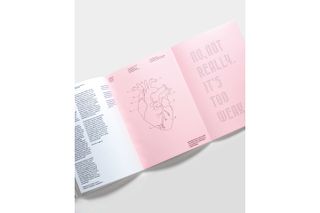
Studying design is about crafting a great design portfolio that will wow potential employers, right? Well, yes. But don't discount the importance of astute creative thinking, and expressing yourself eloquently through the written word. In short, your design dissertation matters.
"I don't believe that design students should be focused entirely on portfolio work," argues Myrna MacLeod , programme leader for Graphic Design at Edinburgh Napier University. "They should also be able to demonstrate an interest in the contexts that underpin their work, and the histories and connections that have informed our practice."
- 5 top tips for graduate designers
"Think of a dissertation as an opportunity, not a burden," urges Craig Burston , Graphic and Media Design course leader at London College of Communication (LCC). "It gives us visually-minded people an opportunity to demonstrate that we too can construct arguments and distil complex notions."
As Burston points out, this is not just an academic exercise: the power of persuasion is often key to success as a commercial designer. "Clients seek clarity, and project concepts or proposals need to be put into context," he says.
Read on to discover some top tips from leading tutors and their students for nailing your design dissertation…
01. Treat it like a design brief
"A great dissertation should be a designed artefact, and portfolio-worthy in its own right," says Burston. And like a design brief, it should be about solving a problem: "Make sure it has clearly stated aims, strong focus, and doesn't lack opinion or rhetoric," he adds.
- Best laptops for graphic design
"The value of a designed dissertation as a portfolio piece is that it's a holistic view of the individual," agrees Sarah James , senior lecturer in Visual Communication at Arts University Bournemouth (AUB).
"It shows, type, editorial, research and aesthetic skill, as well as the personal interests and convictions of the individual."
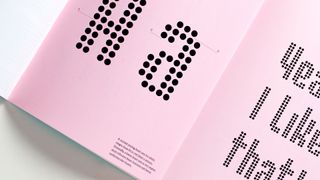
James identifies AUB student Maarit Koobas , who investigated responsive type in both her dissertation and final project, as a particularly strong example of this. "Her design version was one of the most authentic, restrained and elegantly expressive I have ever received," she enthuses.
Koobas conducted a huge amount of initial research into both the contexts in which responsive type can be seen – such as advertising, product design, science and material cultures – and the theories behind its analysis, including semiotics, philosophy and politics. "Creating and analysing ideas, before they end up in your portfolio, is what design is all about," argues Koobas.
- 5 must-read books for design students
02. Write about your passion
"To develop essay questions, AUB students are asked to consider what they love, hate or are puzzled by in their practice – essentially, what moves them," says James.
"A poor dissertation is inauthentically chosen for ease as opposed to interest," she adds. "It rambles and blusters, using complex language to mask insufficient research."
"You can tell a mile off when the writer isn't interested," agrees Burston. "How can you expect the reader to care about it if you don't? Write about something that reflects your interests, focus and direction. I've read fascinating dissertations on topics as diverse as patterns in nature, and Brutalist car parks. Make me interested in what interests you."
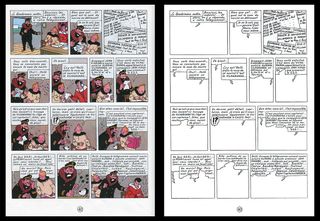
For Edinburgh Napier graduate Fiona Winchester , this topic turned out to be typography in graphic novels. "I love reading them, but I think people still don't take them seriously as an art form, which is a shame," she says. For her dissertation, she conducted qualitative interviews using modified pages with and without imagery (shown above).
Her advice is simple: "Narrow down your idea to be as precise as possible. The smaller your question, the easier it is to research and try to answer it."
If you're struggling to get the ball rolling on the actual writing process, Winchester advocates starting with whichever bit you have ideas for. "If you're stuck, it's so much easier to write in whatever order it comes to you, and then edit it into a dissertation, than to try write straight through from beginning to end," she insists.
03. Don't be afraid to talk to people
"I always think my students get the most out of the new streams of knowledge they find from talking to people," says McLeod. "It breaks down barriers and allows them to find answers to problems. Hopefully they will adopt that approach when designing for people also."
In some cases, this can involve interviewing your design heroes. "Students are very surprised when they send a question to Stefan Sagmeister , Milton Glaser or Michael Wolff and they reply with the most precious nugget of knowledge," smiles McLeod.
But remember: it's your dissertation, so don't get lazy and expect your interview subject to do all the heavy lifting.

In other cases, it could be as simple as asking friends or family to help proofread. "It is quite daunting writing such a large body of text," admits Kaori Toh , a recent graduate from Central Saint Martins, whose dissertation explored the politics of design and technology.
"I often felt I'd get lost in all that text and research," she confesses. "Therefore, I would often send my drafts to a couple of friends to have them look through, and keep my writing cohesive."
04. Reflect on your design practice
Most of all, dissertations are an opportunity to reflect on, and develop, your creative process as a designer. "Ultimately, it's your job to make your work relevant and credible, and the dissertation helps you learn how to do this," adds Burston.
Of course, writing doesn't always come easily to visually minded people – and Burston highlights the fact that dyslexia is not uncommon amongst designers.
"You're not on your own – in our profession, quite the opposite in fact – so do seek academic support, and just enjoy thinking and writing about 'stuff' that informs your practice," is his advice.
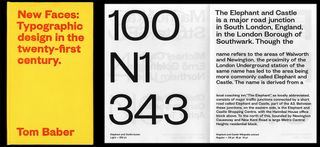
One of Burston's stand-out students from this year, Tom Baber , welcomed support from the university to help with his dyslexia. Baber's dissertation focused on type design, and particularly the extent to which the longwinded design process is worth the effort, compared to using an existing typeface.
"I saw it as an opportunity to approach other type designers and see what they thought. Turns out I'm not the first to ask the question," he smiles. "Writing my dissertation helped me change from a 'maker' mentality to a 'designer' mentality, and be more critical of my ideas."
Related articles:
- 15 things they didn't teach you at design school
- The skills every design graduate needs
- 5 alternative routes into design education
Thank you for reading 5 articles this month* Join now for unlimited access
Enjoy your first month for just £1 / $1 / €1
*Read 5 free articles per month without a subscription
Join now for unlimited access
Try first month for just £1 / $1 / €1
Get the Creative Bloq Newsletter
Daily design news, reviews, how-tos and more, as picked by the editors.
Nick is a content strategist and copywriter. He has worked with world-class agencies including Superunion, Wolff Olins and Vault49 on brand storytelling, tone of voice and verbal strategy for global brands such as Virgin, Pepsi and TikTok. Nick launched the Brand Impact Awards in 2013 while editor of Computer Arts, and remains chair of judges. He's written for Creative Bloq on design and branding matters since the site's launch.
Related articles
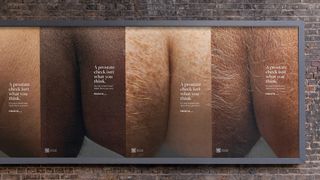
- 2 Samsung Galaxy Tab S9 Ultra review: big Android tablet really can do it all
- 3 The definitive best adverts of all time list, as chosen by experts
- 4 This is one of the simplest but most dazzling optical illusions I've seen
- 5 This $264 Switch OLED deal is still live - but there’s a small catch
- 2 XPPEN Artist Pro 14 (Gen 2) review: fantastic tablet for most artists
- 3 4 mind-blowing Disney animation secrets
- 4 Never forget these terrible X-Men posters existed
- 5 The definitive best adverts of all time list, as chosen by experts

2023 Urban Design Thesis Prize: Saad Boujane’s “Dwellings, Paths, Places: Configurative Habitat in Casablanca, Morocco “
by Saad Boujane (MAUD ’23) — Recipient of the Urban Design Thesis Prize. The Modernist…
Peter Rowe , Faculty Advisor
Spring 2023
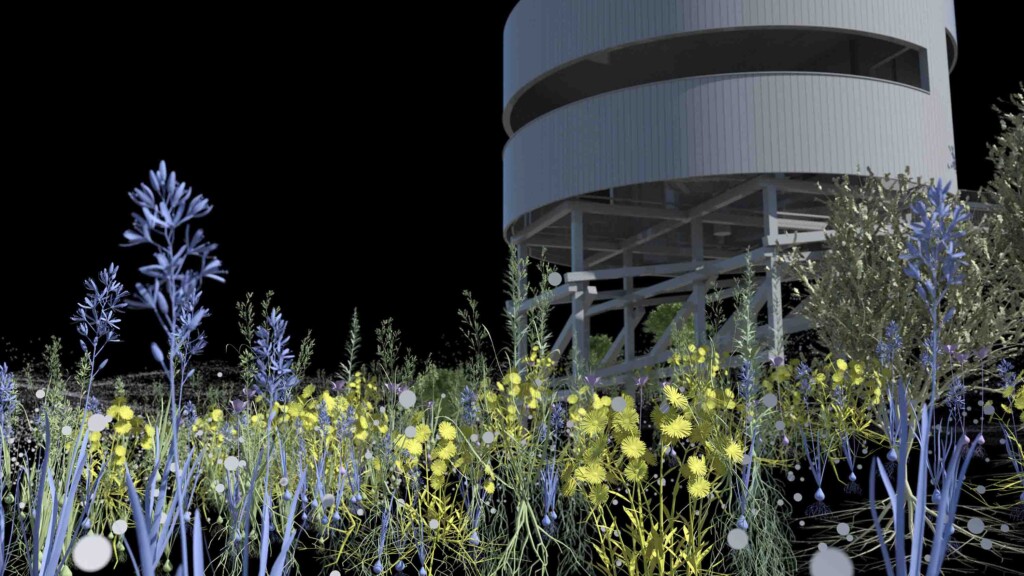
2023 Landscape Architecture AP Thesis Prize and 2023 Digital Design Prize: Sonia Sobrino Ralston’s “Uncommon Knowledge: Practices and Protocols for Environmental Information”
by Sonia Sobrino Ralston (MLA I AP ’23) — Recipient of the Landscape Architecture AP…
Rosalea Monacella , Faculty Advisor
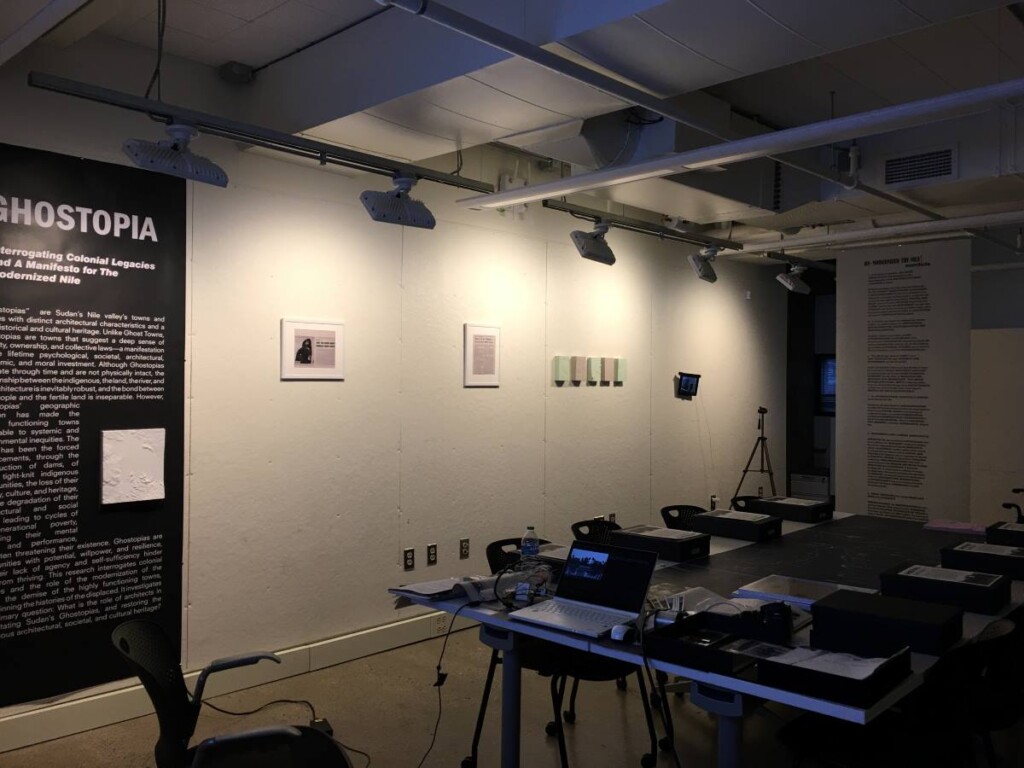
2023 Design Studies Thesis Prize: Alaa Suliman Eltayeb Mohamed Hamid’s Ghostopia: Interrogating Colonial Legacies and A Manifesto for The Modernized Nile
by Alaa Suliman Eltayeb Mohamed Hamid (MDes ’23) — Recipient of the Design Studies Thesis…
Montserrat Bonvehi Rosich, Faculty Advisor
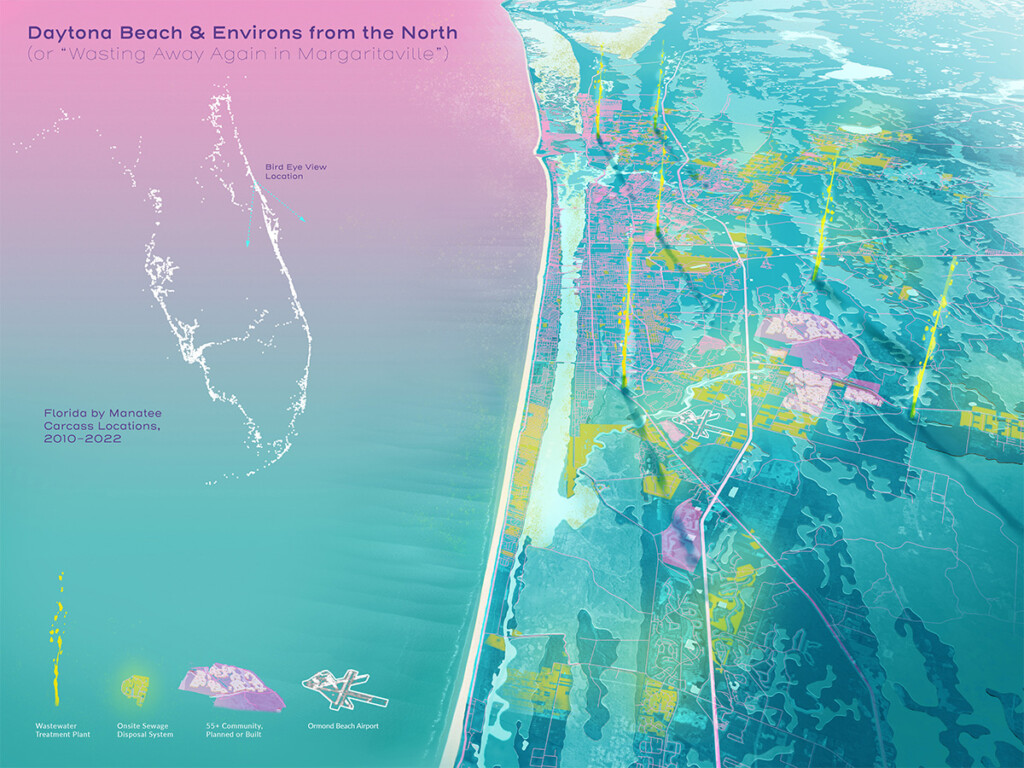
2023 Landscape Architecture Thesis Prize: Kevin Robishaw’s Manatees and Margaritas: Toward a Strange New Paradise
by Kevin Robishaw (MLA I ’23) — Recipient of the Landscape Architecture Thesis Prize.
Craig Douglas , Faculty Advisor
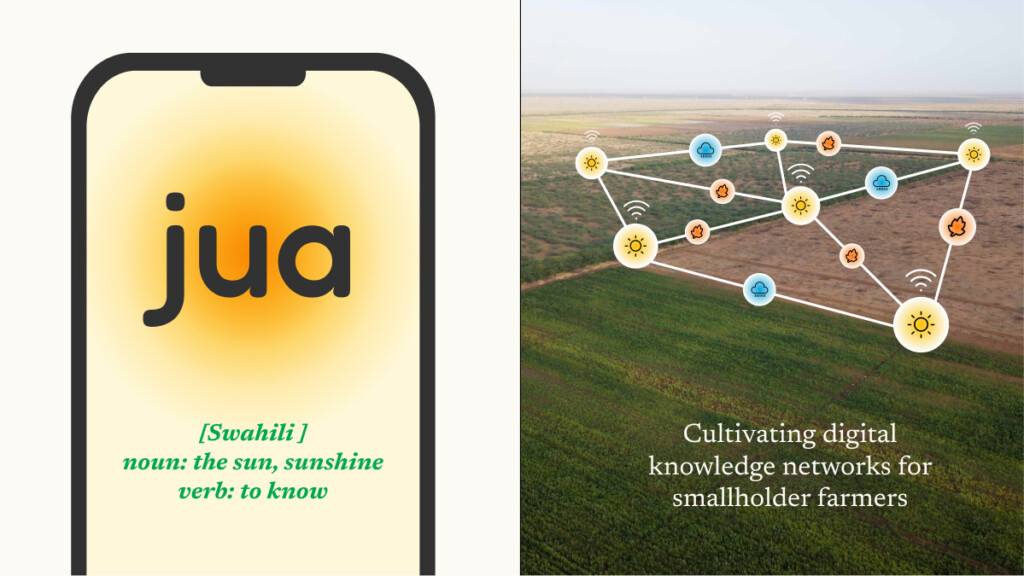
2023 Outstanding Design Engineering Project Award: Rebecca Brand and Caroline Fong’s Jua: Cultivating Digital Knowledge Networks for Smallholder Farmers
by Rebecca Brand (MDE ’23) and…
Jock Herron , Faculty Advisor
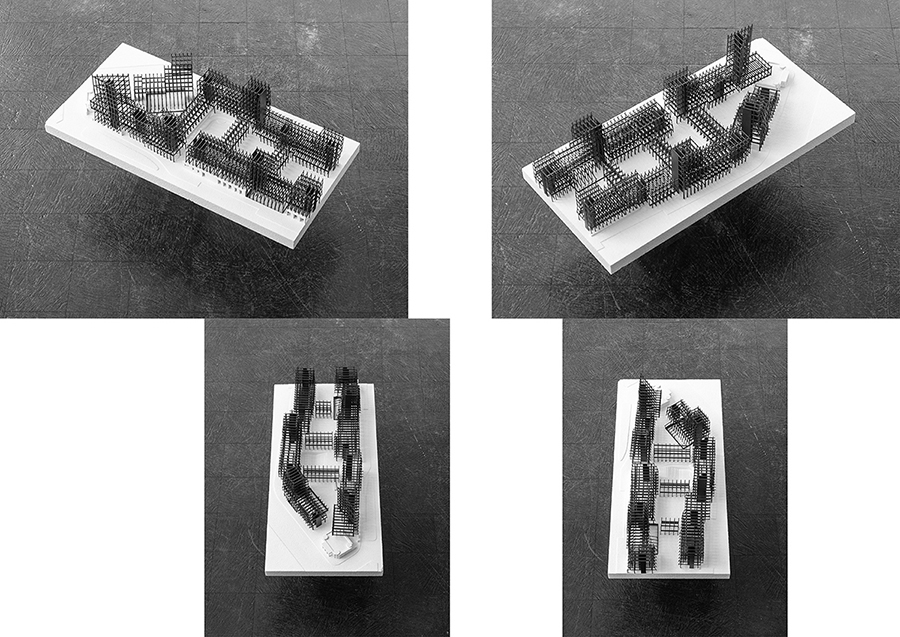
2023 James Templeton Kelley Prize: Deok Kyu Chung’s “Boundaries of Everyday: walls to voids, voids to solids, solids to walls”
by Deok Kyu Chung (MArch II ’23) — Recipient of the James Templeton Kelley Prize,…
Lyndon Neri and Rossana Hu, Faculty Advisors
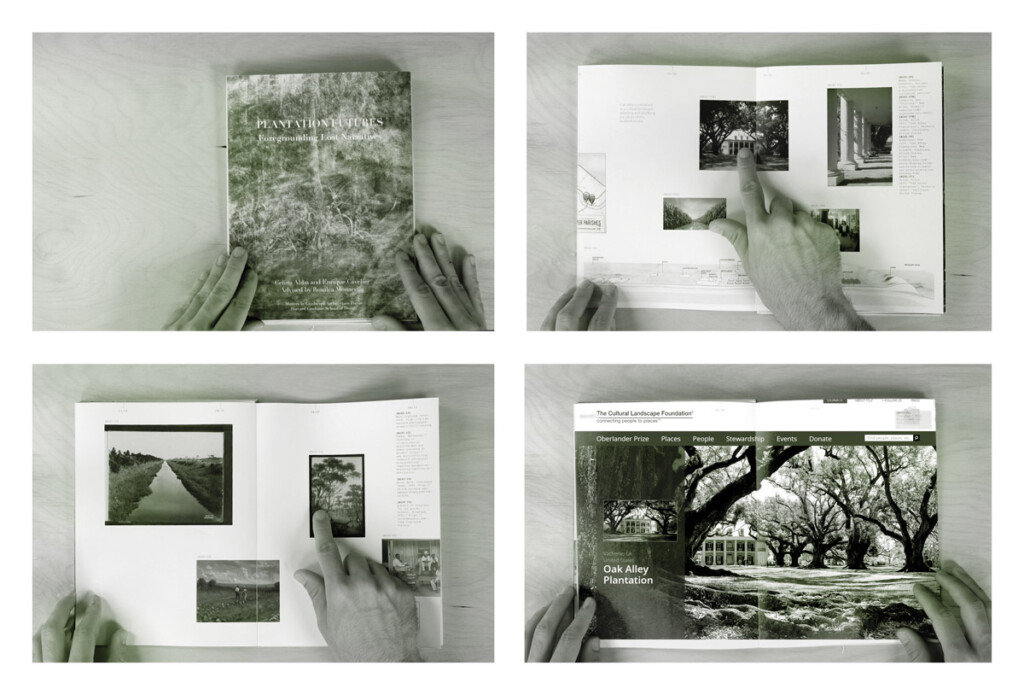
2023 Landscape Architecture AP Thesis Prize: Celina Abba and Enrique Cavelier’s Plantation Futures: Foregrounding Lost Narratives
by Celina Abba (MLA I AP ’23) and Enrique…

2022 Landscape Architecture Thesis Prize: Liwei Shen’s “The Echoes of Sky River – Two Pre-modern and Modern Atmospheric Assemblages”
by Liwei Shen (MLA I ’22) — Recipient of the Landscape Architecture Thesis Prize. The…
Sergio Lopez-Pineiro, Faculty Advisor
Spring 2022

2022 James Templeton Kelley Prize: Isaac Henry Pollan’s “This Is Not A Firehouse”
by Isaac Henry Pollan (MArch I ’22) — Recipient of the James Templeton Kelley Prize,…
Sean Canty , Faculty Advisor
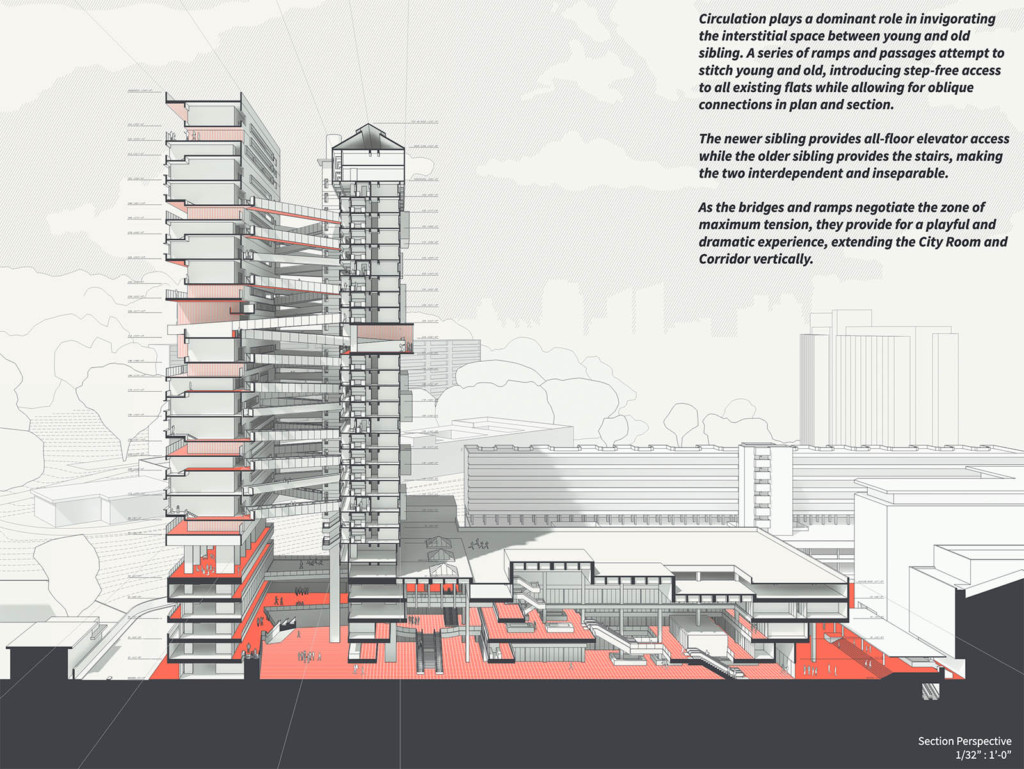
2022 Clifford Wong Prize in Housing Design: Brian Lee’s “People’s Park Complex: Repairing the Modern City”
by Brian Lee (MArch ’22) — Recipient of the 2021 Clifford Wong Prize in…
Grace La and Jenny French , Faculty Advisors
Pagination Links
- Go to page 1
- Go to page 3
- Go to page 4
- Go to page 5
- Go to page 6
- Go to page 7
- Go to page 8
- Go to page 9
- Go to page 10
- Go to page 11
- Go to page 12
- Go to page 13
- Go to page 14
- Go to page 15
- Go to page 16
- Go to page 17
- Go to page 18
The University of Manitoba campuses are located on original lands of Anishinaabeg, Ininew, Anisininew, Dakota and Dene peoples, and on the National Homeland of the Red River Métis. More
Faculty of Architecture
University of manitoba.
University of Manitoba Winnipeg, Manitoba Canada, R3T 2N2
About the design thesis
The Department of Architecture design thesis is an opportunity for students to challenge themselves by pursuing architectural interests in ambitious and self-critical ways, while working in the mutually supportive context of peers attempting the same.
The design thesis is an independently driven creative work developed within a focused subject of inquiry and directed by architectural questions. It is carried out through intensive research, study, and design explorations, and culminates in a thoroughly developed architectural proposition. It is to be fully recorded in a final document.
The design thesis is both an end in itself and a new beginning: it culminates a professional education, but also inaugurates new directions. It is a transformative event — a threshold, opening new ways to think, make and engage architecture, others and the world.
Carrying out self-directed design research and bringing this work to creative fruition are imperative skills for any architect. The design thesis entails considerable intellectual risk, but can also be serious fun! It should be the most exhilarating time of an architect’s education and a fulfilling experience that one reflects on fondly and meaningfully for the rest of one’s life.

Beginning the design thesis
An important preliminary step of the design thesis is preparing a proposal that establishes the general topic and particular strategies to guide the work. A thesis topic should have at least two facets: subjects that fascinate you, and problems that concern you. Articulating a multi-faceted topic of interest, however, is not enough.
A design thesis proposal must further describe particular conditions, programs, sites and/or phenomena to be studied (“the what”); exploratory strategies and manners of working by which the topic will be investigated and the design developed (“the how”); and relevant research precedents—architectural, theoretical and cultural contexts—to which the work will meaningfully relate (“the why”). A proposal must be clear, specific, succinct, relevant, exciting, and achievable within the given time frame.
A good proposal is detailed, yet open-ended. It does not predetermine results but rather inaugurates inquiry in particular ways, establishing the parameters that allow for creative work to unfold. The best design thesis work results from restless inquiry, rigorous commitment, and critical discourse with peers.
Term one: Finding topics and articulating questions
How does a thesis begin? With questions! While each student will develop their own, everyone should also grapple with the fundamentals: What is architecture? What are its various manifestations? What are the most pressing challenges facing the discipline today?
What are its most persistent, trans-historical topics? What are the different ways of performing architectural work, and which ways do I seek to develop? What kind of architect do I want to become? What architectural settings have I found to be most moving? Most fascinating? Most troubling? Most confounding? Most meaningful? What ignites architectural imagination?
The design thesis commences with a design research studio. This first term is about finding topics of fascination and concern, articulating questions and attempting responses. The first term culminates with significant attempts at architectural design and design strategies, together with presentations of ongoing creative research in the form of diverse models and drawings, and potentially full-scale installations, supplementary videos and digital projections.
Term two: Producing a design thesis book
During the winter design thesis term, students fully manifest a substantive architectural design project and produce a design thesis book. The book compiles a full year’s worth of search and research, including documentation of processes, iterations, and a final design, plus sufficient text to describe the thesis inquiry, providing contextual framing, interpretive annotations and critical reflections.
General studio and course information
- General studio and course information (PDF)
- Studio and technology portfolio guidelines (PDF)
Design thesis information
- Design thesis s chedule (PDF)
- Proposal approval form (PDF)
- Proposal description (PDF)
Thesis Helpers
Find the best tips and advice to improve your writing. Or, have a top expert write your paper.
110 Fantastic Graphic Design Thesis Ideas To Succeed
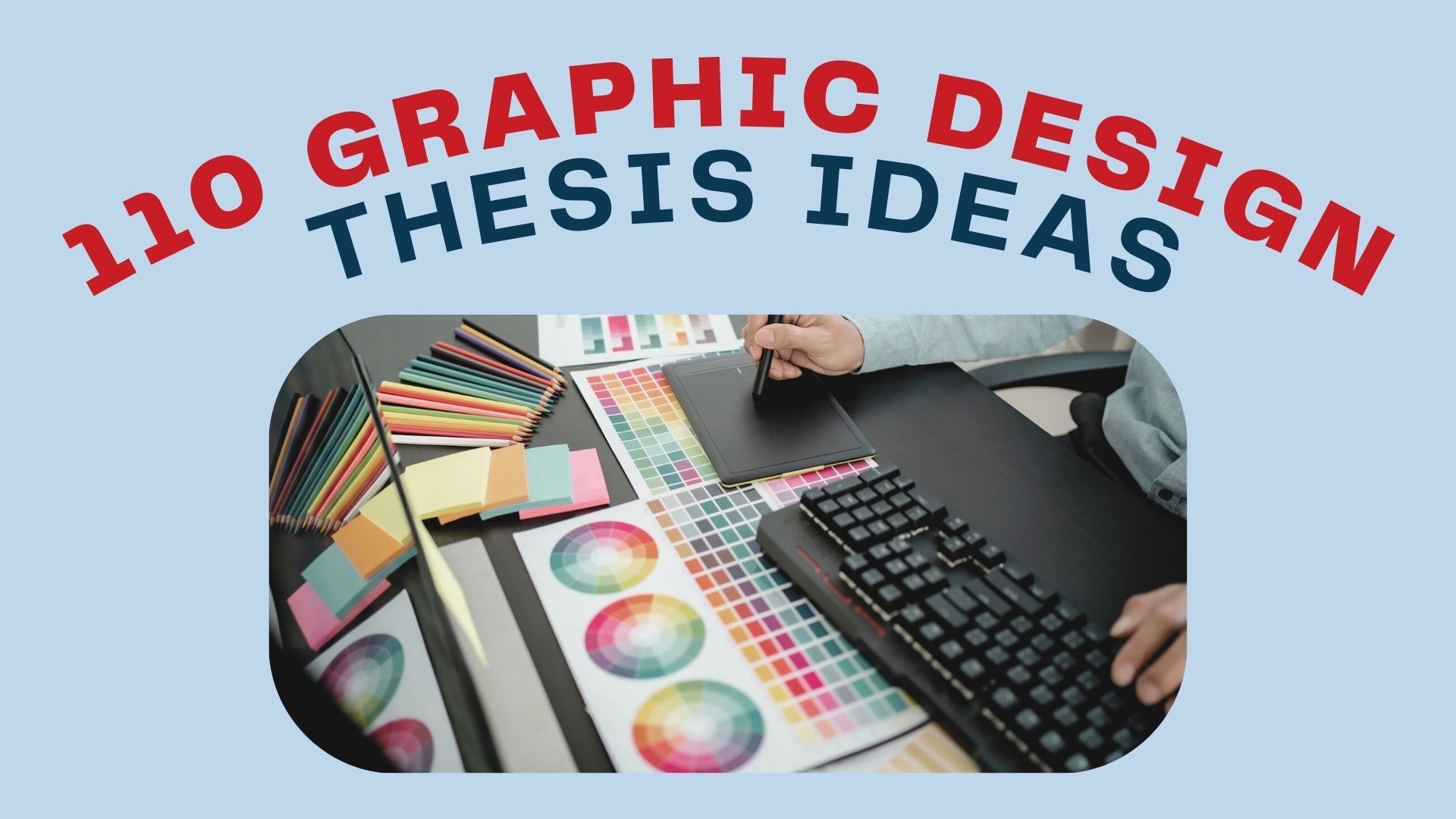
Graphic Design is an art where professionals plan and practice creating visual and textual content to deliver messages. In today’s world, it’s the most innovative and most effective way for businesses to connect with their consumers.
Graphic design has many forms, from a simple business logo to a complex page layout on a website. The magazine covers, posters, logos, business cards, websites, and mobile apps are only a few examples of what graphic design businesses can deliver as their concept to their clients and audience. A good graphic designer should know how to attract people by displaying innovative and appealing content. Hence, it’s crucial to master the ways to express ideas creatively.
Why Is Graphic Design Thesis Important for Students?
Creating an excellent thesis using some unique and intricate graphic design research topics is essential to have a successful career in this field. Also, it’s crucial to do graphic design research to wow potential employers for good prospects. The thesis paper is the gist of what you have learned for your bachelor’s degree in university life; therefore, it’s vital to showcase creative thinking and impressive skills. There are tons of thesis ideas for graphic design that allow the students to be creative and show their full potential. To help you ace your graphic design research paper, we will be discussing every step of creating the thesis in detail.
Creating A Winning Thesis Proposal for Graphic Design
For the best graphic designing thesis project, students should have strong writing skills and complete knowledge of visual design principles. Moreover, students should know the advanced application of the skills they have learned. Furthermore, choosing the topic according to your grade in school, college or university is essential. Senior students can choose a thesis topic from the several graphic design senior thesis topics available online. Sometimes people attend workshops to learn the art of creating an impressive graphic design research paper. We have simplified the thesis writing process for students who are not keen to participate in workshops. People who have some knowledge may also benefit from the blog as it provides simple tips that you can follow to get started. Here are some things to keep in mind when preparing and writing you graphic design dissertation:
- Have a catchy introduction. A perfect intro will create a good impression and would encourage the reader to read on. Therefore, it’s essential to choose a passionate topic as anything written with heart can easily catch the reader’s attention. Unleash your artistic side to express yourself eloquently. It’s better to start with a short introduction. Keep it brief so that you can capture the reader’s attention.
- Create a strong problem Statement. Knowing the background of the problem or the topic you are dealing with allows you to create a convincing problem statement. In this part of the thesis, you will highlight your research question around the cause of your research. You should write a page-long description of evaluating various options and choose the most suitable one. This part of the graphic design research doesn’t have to be elaborate.
- Include an Aim and Objectives of the Study section. Use this part of the thesis to provide reasons why the chosen topic is significant. Let the reader know about your intent behind the research. These are the outcomes that you hope to achieve from your project. Also, use this part of the graphic design writing to display the objectives behind your research. The reader should have all the answers to why you want to address the highlighted graphic design issues.
- Describe the method you use. In this section of your thesis, describe the methodology you will use to attain your goal. You should highlight all the methods available, compare them and select the most viable option. You can add details about the software, print media, or any other media platform you have used to complete your graphic design writing.
- Prepare a literature review. Creating a literature review is an integral part of the project as it contains details of the type of research you carried out and how you conducted them. Also, it provides a theoretical framework for your dissertation, giving the reader an insight into where you started, the ideas you chose, and where the concepts have brought you.
- Highlight the key ideas, scope, and limitations of the study. Coming towards the end of your research, you should specify the critical objectives attained from the project. Also, the project’s scope should identify the advanced uses and the limitation of the concept discussed in the thesis. Keep your content original and take as much thesis help you need from the sources available for an outstanding dissertation.
Graphic Design Thesis Topics
According to your interest, there are many topics you can look for on the internet for your graphic design thesis topic. We have researched to compile the 110 most interesting graphic design research paper topics; you are sure to find the best one for your thesis. From environment enthusiast to an art school student, our diverse topics will help you find the best topic for your thesis.
Best Graphic Design Thesis Topics
- Uses Of Graphic Design To Create Environmental Awareness
- Current And Future Trends In The Commonly Used Software For Graphic Designs
- Design And Culture Expectations
- Enhancing Understanding Through Visual Imaging
- The New Graphic And Media Designs
- The Fall Of Desktop Publishing
- Development Of Web Animation.How The Internet Shaped Animation Content
- The Evolution Of Newspaper Ads In The Technological Era
- Role Of Personality In Arts
- Set Creation In The Film Industry Using Graphic Design
- Theme Design For Restaurants
- Elements Of Persuasion And Graphic Design
- Commercial Design: Dealing With The Clients To Facilitate Feedback
- Organisationational Branding And Websites.
- Role Of Visual Hierarchy To Create Customer Perception Of E-Commerce Stores
- Art Directors: Transformational Heads
- How Graphic Designs Are Used In The Making Of Directories
- Role Of Graphic Design In The Evolution Of Modern Cinema
- Creating A Colorful Classroom
- Typeset: Principles And Techniques
- How Color Theory Effects Graphic Design
- How To Smartly Use Space In Design Esthetics
- Effect Of Organizational Branding And Logos On Sales
- Use Of Graphic Design For Social Commentary And Street Art
- Use Of Graphic Design For Movie Festival Promotion
- Newspaper Ads And Graphic Design. How They Mold Consumer Buying Behavior
- Graphic Designing Tools And How The Industry They Have Impacted The Industry
- How Does Color Psychology Trigger Emotions? A Case Study On Baker-Miller Pink
Top Graphic Design Thesis Ideas
- A Case Study On Renowned Graphic Designers Of The Time
- Influence Of Tv On Graphic Design
- Role Of Computers In The Evolution Of Graphic Design
- How Graphic Design Is Used In Game Interfaces To Attract Consumers
- Importance Of Balance In Creating Impressive Visuals. A Graphic Design Basic
- Conventional Designing Software Vs. Online Graphic Designing Tools. Which Is More Convenient?
- How Does Visual Heuristics Help In Segmenting The Viewer’s Attention?
- Use Of Graphic Design For Political Satire
- How Brands Use Negative Spacing To Affect The Subconscious Minds Of Consumers
- Role Of Web Graphics In Creating Visitor’s Trust
- Defining Consumer Perceptions To Web Designs
- Theories Of Graphic Design. Application And Importance In The Design Industry
- Human Psychological Connections And Color Selection
- How Online Gaming Trends Have Changed
- Impact Of Theory Of Repetition On Consumer Buying Behavior
- Multimedia Design And How It Has Changed The World Around Us
- Importance Of Graphic Design To Generate Sales For Online Service Providers
- Evolution Of Digital Art Over The Years
- Graphic Design In The 20th Century
- Advertisement And The Subliminal Messages
- Use Of Powerpoint Presentations To Create Amazing Designs
- Graphic Design Trends In The 21st Century
Excellent Thesis Ideas for Graphic Design
- Propaganda Posters: Political Messages
- How Email Marketing Has Changed
- Development Of Career Paths In Graphic Design
- Essentials Of Business Branding
- How Graphic Design Revolutionized Product Packaging
- Redesigning A Book Cover
- Growth Of Graphic Design Over The Years
- Evolution Of Vehicle Wraps Using Graphic Design
- Cost-Benefit Analysis Of Investing In A Graphic Designer
- Analyzing The Role Of Colors In Graphic Design
- Trade Show Displays And Signage To Create Attention
- Analyzing Various Techniques Used By Graphic Designers
- Use Of Graphic Design To Create Infographics
- Exploring How Service Design Impacts Visual Information
- Studying The Application Of Graphic Design In Advanced Technology
- How Does The Use Of Warm Colors Help Viewers Connect With Your Facebook Posts
- A Case Study On Consumer Psychology-Difference Between Warm And Cool Colors
- Use Of Graphic Design To Create Images For Blogs
- Use Of Artificial Intelligence In Graphic Design
- Photo Collages And Their Importance For Youngsters
- Evaluating The Value Of The Visual Design Structure
Interesting Graphic Design Research Topics
- Impact Of Artistic Sensibility In Graphic Design
- How Banners To Aid In Conveying Messages
- Analyzing Average Budget For Graphic Design Projects
- Importance Of Graphic Design Education Across Borders
- Impact Of Appealing Products On Consumer Choices
- Retargeting Ads To Reach Out To The Target Market More Efficiently
- Perspectives Of People On Visual Communication Design Education
- Learning How To Apply The Theory To The Graphic Design Course
- Analyzing The Trends In Graphic Design During The Past Decade
- Graphic Novel-A Literature Review
- Business Cards. An Essential For Businesses
- Relationship Between Pop Culture And Graphic Design
- Recognizing The Qualities Of A Professional Graphic Designer
- Using Secondary Research To Explore The Various Features Of Web Design
- Creative Coloring Books For Kids
- Outcomes And Impact Of Graphic Design On The Consumer Market For The Top Brands Of The Country
- Reinterpretation Of A Classic Book Cover
- How Does The Design Language Trigger Brand Retention In The Minds Of Customers
- Use Of Animation To Create Beautiful Postcards
- 10-Minute Projects That Will Amaze You
Graphic Design Senior Thesis Topics
- Use Of Graphic Design To Create A Plant Identifying App
- Flat Logo Designs V/S Gradient Logo Designs. A Case Study On The Automobile Industry
- Use Of Computer Graphics And Advertisement To Change Consumer Behavior
- Effect Of Contrast Colors To Drive Consumer Buying Behavior
- Passion Project: Following Your Dream
- How Businesses Use Brochures To Attract Sales
- Use Of Print Media And Advertisements To Change Consumer Buying Behavior
- Logos. Essential For A Business Image
- How Clothing Brands Use Graphic Design To Create Designs
- 20th Century Evolution Of Computer Graphics
- A Case Study On Computer Graphic Designers
- Impact Of Using Filters In Videos To Gain Customer Attention And Sales
- Use Of Psychological Triggers In Graphic Design To Create Customer Loyalty
- Effect Of Limited Financial Plan On Graphics
- Commercial Distinctiveness And Graphic Design
- A Case Study On The Top Marketing Agencies Of The Country
- A Case Study On Apple. How It Molds Consumer Buying Behavior
- How Does The Consumer Remember Your Brand? A Case Study On Louis Vuitton
- Impact Of Design To Create Sales For E-Commerce Stores

Is Your Graphic Design Thesis Due Soon?
When you start your thesis, you may encounter various graphic design issues, but keep your eyes on the master’s degree and keep working hard. You can also hire low-cost native writers for your project plan by googling “Do my research for graphic design thesis.” These professionals will provide complete research for your thesis topic, as well as high-quality content, and will also proofread your thesis when you are done. Moreover, writing professionals offer reliable services, so you don’t have to worry that your thesis idea will get stolen or hacked.
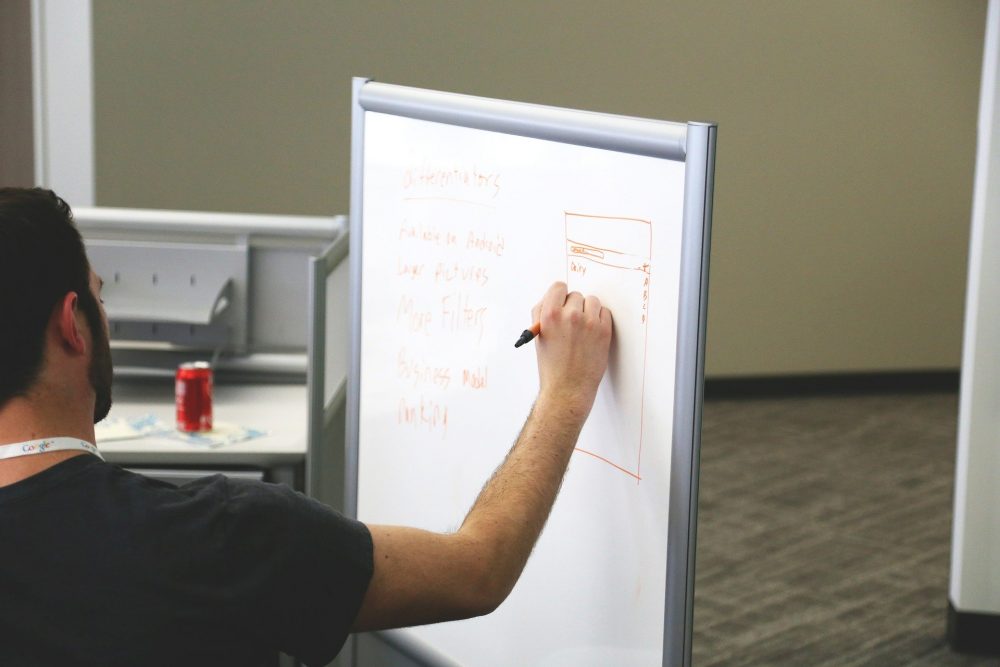
Make PhD experience your own
Leave a Reply Cancel reply
Your email address will not be published. Required fields are marked *
Think of yourself as a member of a jury, listening to a lawyer who is presenting an opening argument. You'll want to know very soon whether the lawyer believes the accused to be guilty or not guilty, and how the lawyer plans to convince you. Readers of academic essays are like jury members: before they have read too far, they want to know what the essay argues as well as how the writer plans to make the argument. After reading your thesis statement, the reader should think, "This essay is going to try to convince me of something. I'm not convinced yet, but I'm interested to see how I might be."
An effective thesis cannot be answered with a simple "yes" or "no." A thesis is not a topic; nor is it a fact; nor is it an opinion. "Reasons for the fall of communism" is a topic. "Communism collapsed in Eastern Europe" is a fact known by educated people. "The fall of communism is the best thing that ever happened in Europe" is an opinion. (Superlatives like "the best" almost always lead to trouble. It's impossible to weigh every "thing" that ever happened in Europe. And what about the fall of Hitler? Couldn't that be "the best thing"?)
A good thesis has two parts. It should tell what you plan to argue, and it should "telegraph" how you plan to argue—that is, what particular support for your claim is going where in your essay.
Steps in Constructing a Thesis
First, analyze your primary sources. Look for tension, interest, ambiguity, controversy, and/or complication. Does the author contradict himself or herself? Is a point made and later reversed? What are the deeper implications of the author's argument? Figuring out the why to one or more of these questions, or to related questions, will put you on the path to developing a working thesis. (Without the why, you probably have only come up with an observation—that there are, for instance, many different metaphors in such-and-such a poem—which is not a thesis.)
Once you have a working thesis, write it down. There is nothing as frustrating as hitting on a great idea for a thesis, then forgetting it when you lose concentration. And by writing down your thesis you will be forced to think of it clearly, logically, and concisely. You probably will not be able to write out a final-draft version of your thesis the first time you try, but you'll get yourself on the right track by writing down what you have.
Keep your thesis prominent in your introduction. A good, standard place for your thesis statement is at the end of an introductory paragraph, especially in shorter (5-15 page) essays. Readers are used to finding theses there, so they automatically pay more attention when they read the last sentence of your introduction. Although this is not required in all academic essays, it is a good rule of thumb.
Anticipate the counterarguments. Once you have a working thesis, you should think about what might be said against it. This will help you to refine your thesis, and it will also make you think of the arguments that you'll need to refute later on in your essay. (Every argument has a counterargument. If yours doesn't, then it's not an argument—it may be a fact, or an opinion, but it is not an argument.)
This statement is on its way to being a thesis. However, it is too easy to imagine possible counterarguments. For example, a political observer might believe that Dukakis lost because he suffered from a "soft-on-crime" image. If you complicate your thesis by anticipating the counterargument, you'll strengthen your argument, as shown in the sentence below.
Some Caveats and Some Examples
A thesis is never a question. Readers of academic essays expect to have questions discussed, explored, or even answered. A question ("Why did communism collapse in Eastern Europe?") is not an argument, and without an argument, a thesis is dead in the water.
A thesis is never a list. "For political, economic, social and cultural reasons, communism collapsed in Eastern Europe" does a good job of "telegraphing" the reader what to expect in the essay—a section about political reasons, a section about economic reasons, a section about social reasons, and a section about cultural reasons. However, political, economic, social and cultural reasons are pretty much the only possible reasons why communism could collapse. This sentence lacks tension and doesn't advance an argument. Everyone knows that politics, economics, and culture are important.
A thesis should never be vague, combative or confrontational. An ineffective thesis would be, "Communism collapsed in Eastern Europe because communism is evil." This is hard to argue (evil from whose perspective? what does evil mean?) and it is likely to mark you as moralistic and judgmental rather than rational and thorough. It also may spark a defensive reaction from readers sympathetic to communism. If readers strongly disagree with you right off the bat, they may stop reading.
An effective thesis has a definable, arguable claim. "While cultural forces contributed to the collapse of communism in Eastern Europe, the disintegration of economies played the key role in driving its decline" is an effective thesis sentence that "telegraphs," so that the reader expects the essay to have a section about cultural forces and another about the disintegration of economies. This thesis makes a definite, arguable claim: that the disintegration of economies played a more important role than cultural forces in defeating communism in Eastern Europe. The reader would react to this statement by thinking, "Perhaps what the author says is true, but I am not convinced. I want to read further to see how the author argues this claim."
A thesis should be as clear and specific as possible. Avoid overused, general terms and abstractions. For example, "Communism collapsed in Eastern Europe because of the ruling elite's inability to address the economic concerns of the people" is more powerful than "Communism collapsed due to societal discontent."
Copyright 1999, Maxine Rodburg and The Tutors of the Writing Center at Harvard University
You are here
Graphic design: year 4, graphic design thesis.
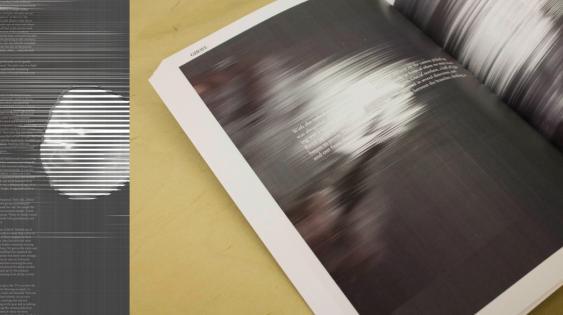
DES480/481 GRAPHIC DESIGN THESIS offers senior graphic design students opportunity to engage in a year-long investigation into a guided, but self-directed research project. Students initiate and frame a complex design project, clarifying individual interests and strengths as they relate to professional aspirations. Applying knowledge and skills acquired in previous courses, students determine the final form of their thesis project, which may involve multimedia implementation. The senior thesis is exhibited in the Year End Show.
Nina Andorf, BDes Graphic Design, Ghost , 2014
DigitalCommons@RISD
Home > Landscape Architecture > Landscape Architecture Masters Theses
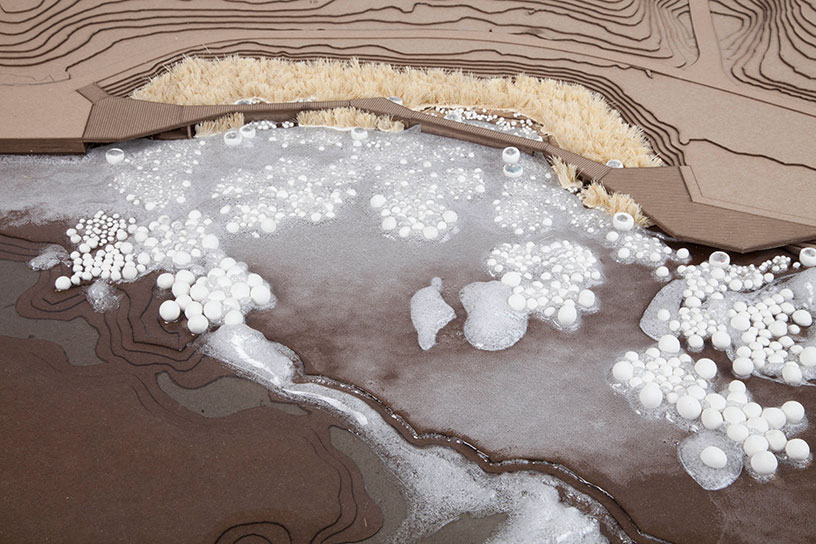
Landscape Architecture Masters Theses
Fully accredited by the American Society of Landscape Architects, RISD’s MLA program is unique in that it gives students access to a wide range of fine art and design courses on campus, along with classes at Brown University, study abroad options and a six-week Wintersession that allows for focused study on campus or off. In addition, the program revolves around environmental and global issues, with recent involvement in projects in Bangladesh, Costa Rica, Ghana and beyond.
In the final year, students complete the course of study by developing a thesis and a methodology for testing their conceptual premise through a committed design project. This final requirement differs from most programs, and allows students to spend the time they need to develop a visual and written language that articulates their interests and future direction. All MLA candidates also participate in the RISD Graduate Thesis Exhibition, a large-scale public show held annually.
These works are licensed under a Creative Commons Attribution-NonCommercial-No Derivative Works 4.0 License .
Theses from 2024 2024
Detroit Jazz Geographies: Marronage and Speculative Urban Futures , Denzel Amoah
Folding (and Unfolding): A Site-Responsive Strategy for Reusing Construction and Demolition Waste , Jennifer Ansley
DEFINING SELF IN THE URBAN FRONTIER , YIMENG AN
Tethered by Nourishment - Exploring Sovereignty within an Urban Food Apartheid , Benjamin Bailey
Landing: body, site, material , Renata Berta
Trans-species Communication, Fueled by Efforts of Remediation , Naomi Canino
Discovering The Lightness of Being , Yuemeng Dai
Beach Autonomous Zone , Carl Garvey
Thickness of Place: Urban Stratigraphy and Rammed Earth Construction in Cambridge, Massachusetts , Alexandra Goodenough
Bilateral Vertical Urbanization , Yifan Huang
Migrating with the Salt Marsh , Yiming Lei
Conspicuous Repair: Drawing Attention to Brokenness in Public Landscapes , Ashley Pedersen
Spirit of Place: examining chinese principles of place-making in a contemporary urban context , Junyi Shi
TIMELESS TEACHINGS & UNBRIDLED POSSIBILITIES , Ruijie TAI
Revitalizing Public Spaces: Integrating Mental Exercise into Contemporary Landscape Architecture Design , Silin Wang
Empathetic Reverberations , Tianyue Wang
A New Grounding , Corey Watanabe
Fluid Futures: The Revitalization of Yangzhou Through Its Historical Waterways , Feiyang Wu
Memory and Experiential Lab , Yufan XU
Small Islands Commons: Retrieving Territory, Identity and Rights in The Bahamas , Fangzhou Zhao
EquiVision Habitat: The Collective Dreamworks , Shixuan Zhou
Theses from 2023 2023
Starting From Ecotone Reconnecting Fragmented Mission Hill , Xinyi Cai
Arctic Resilience: Adaptive Networks of Self-Sufficiency , Jingjing Cui
Beyond the Lines , Miranda-Max de Beer
Abundance within Scarcity: Food Security in the Favelas of Brazil , Menglin Ding
Cities of Tomorrow Future Urban Planning Strategies , Jingyu Ge
Landscape De/Re-Construction through Art , Manuel Gonzalez
Liquid Border , YINGFAN JIA
FLOWS OF SOUND “Harnessing Sound As Critical Urban Resources” , Zuan Lin
Temporary urbanism-spatial democracy in the temporary city , Shijie Li
MODERN NOMADISM ——A network of reciprocal moorings , Jinting Liu
Enhancing Wellbeing In Public Landscape Through Light , Ruiqing Miao
CRACKS OF THE CITY: Crack as an invitation for informality , Yusha Miao
The Root of Culture: Human Ritual and the Soils of West Virginia , Aleece Mount
Celebrate Scarcity: Water Harvesting as Cultural Keystone , Jiajun Ni
Orchestration of Experience , Jingyi Shen
SENSIBLE NATURE: To “See” As We Once Did , Yuhan Su
Vanishing Ice , Zhehao Tang
Rebuild Relationships Between City, Agriculture and Ecosystem in the World of the Drought , Ninghao Wang
Moving In, Moving Up, Moving On : The adaptation and preservation of Chinese diasporas through food , Jieqi Yao
Watering the Soul: Reintroduction of Water to the Urban Space , Danfei Zhang
Healing the Haunted: Rituals of Mourning and Suture , Pian Zhang
City as Cemetery , Siqiao Zhao
Theses from 2022 2022
X-Era: adaptation to the future uncertainty with sustainable Indigenous wisdom , Ruoyuan Chen
Systemic design: Experiments to trigger pedestrian empathy in the urban system , Yu Chen
City of intelligent soil: systematic approach towards urban soil mutualism , Yuting Chen
To mine or not to mine? Epistemological development of the Pebble Mine landscape in Lake Iliamna area as a resilient commons system , Chenfang (Vincent) Gang
Urban vine: reimagine the scaffolding as a repair opportunity to transform the ecosystem , Shuyi Guan
Arriving in the city: reimagining the urban footholds for rural workers , Xinlei Gu
Scalability system: A tool for bioregional navigation , Lulu Hou
We walk, we live: reclaiming the rights of female and other gender minorities to the urban commons , Wenxi (Hillary) Huang
Darkness matters: understanding the ecological effects and human sensory perception of night lighting , Zitong (Shirley) Hui
Field guide to gendered public life : balancing the preservation of the existing vibrant public life with the improvement of the female experience , Christina Koutsoukou
Regenerating the ground: Using regenerative agricultural practices to increase urban food production and restore the health of soils , Yuxiao Liao
Anti-gentrification: reconnect Chinatown through culture practice , Xianzhongge (Allen) Liu
Aquatic assemblages: improving dragonfly habitat and water quality in an urban park , Yan Liu
Trash matters: material strategies for prolonging the life of single-use plastic , Zixin Li
Infection-free landscape: adaptable urban open space design during and after the COVID-19 pandemic , Weirong Luo
Offshore speculation: generative ethics for submerged lands , Leigh Miller
Design in support of playfulness , Seung Hwan Oh
Emotional experience: An exploration of reestablishing the connection with nature through novel street tree planning in Providence, RI , Xiuyan Qin
Living with fire , Mohan Wang
Farming publics: Use farming practices as a tool to de-alienate people with land , Sirui Wang
Sensory resilience in urban walkingscapes: Space making strategies for streetside public systems in neuro- inclusive city visions , Yingying Wang
Slow down: Investigating how pop-up installations transform multi-use space , Yuanrui Wang
Landscape of resistance: reimagining public space for a vibrant socio-political life , Ziyu Wang
Zoopolis: repurpose urban infrastructure to welcome invisible neighbors , Yu Xiao
The Urban fabric: upcycling textile waste into raw material for urban ground surface design , Wenlin Yang
Agricultural Landscape as cultural practice : through the lens of rice farming , Yumeng Yan
One land / one ocean: reactivate coastal commons in urban territory , Chengie Zhang
Bee stations: refueling bees and creating opportunities for education , Jinghan Zhou
Cross border conservation - China - North Korea border , Ziyu Zhou
The future of the High Plains Aquifer: addressing potential desertification in the Great Plains , Hongfei Zuo
Theses from 2021 2021
Solastalgic ecotone: the critical zone in suspension , Bareeq Bahman
The sixth migration - rural/urban "heterotopia" , Pan Chen
Inclusive multi-sensory landscape: directing visually impaired people in a perception world , Tianqi Chen
Urban tree community: living with tree spirits , Xueying Chen
Blur the boundaries: an aerial coexisting system for birds and humans on rooftops , Yu Fang
Holding: speculative infrastructure for fire mitigation , Ian George
Rewilding Seattle: a green network for both humans and non-humans , Zhouqian Guo
Mutable landscapes: diversity through the lens of the earth's biomass , Ilya Iskhakov
The TEK-way: traditional ecological knowledge: a catalyst to building resilient communities , Smera Rose Jacob
Transforming islands: a living memorial for the Marshall Islands , Chengwen Jiang
Reimagining the damage: an exploration on urban brownfield regeneration strategies , Jun Jiang
Re-foresting: cohabitation of human and trees , Chengyu Ke
Filmic landscape: a performative space with multi-medium , Zhihong Ke
Land, labor, water: an agricultural commons in the Central Valley of California , Jacob Lightman
Post-industry brownfield renewal system: precision strategy and design via the new methodology , Sirui Li
Fluid ground: imagining a floating future for Tuvalu , Yuxi Liu
Eco-waste: household waste material flows in a circular economy , Erqi Meng
Affordable Green: what cause landscape gentrification and how we deal with it , Siyu Pan
Virtuality, reality, community , Siqi Rao
Synthetic undulation: improving the marine life quality on the Indonesian island of Seleyar , Shreeyaa Shah
Community steward of the deep bay: staging Lau Fau Shan for resiliency through collective participation , Lauren Tam
Across the boundary: addressing segregation along transportation infrastructure , Ruochen Wang
Regional food self sufficiency: new visions for productive landscapes , Yiling Wang
Wandering land: landscape on space station , Xin Wen
Optics / perception / experience: regenerating agricultural landscape through railways , Tianyi Xie
A better city for her: design safer public spaces for women in the United States and China , Geruihan Xu
Mother river: restoring transiting producing , Rui Yang
- All Collections
- Departments
- Online Exhibitions
- Masters Theses
- Disciplines
Advanced Search
- Notify me via email or RSS
Contributor Info
- Contributor FAQ
- RISD Landscape Architecture MLA
Permissions
- Terms of Use
Home | About | FAQ | My Account | Accessibility Statement
Privacy Copyright

- Art and Culture , Articles , Special Edition Articles
Urban Design Thesis Handbook
- April 20, 2023
- Architecture thesis , Thesis Projects , Urban design , Urban Planning , Urban thesis
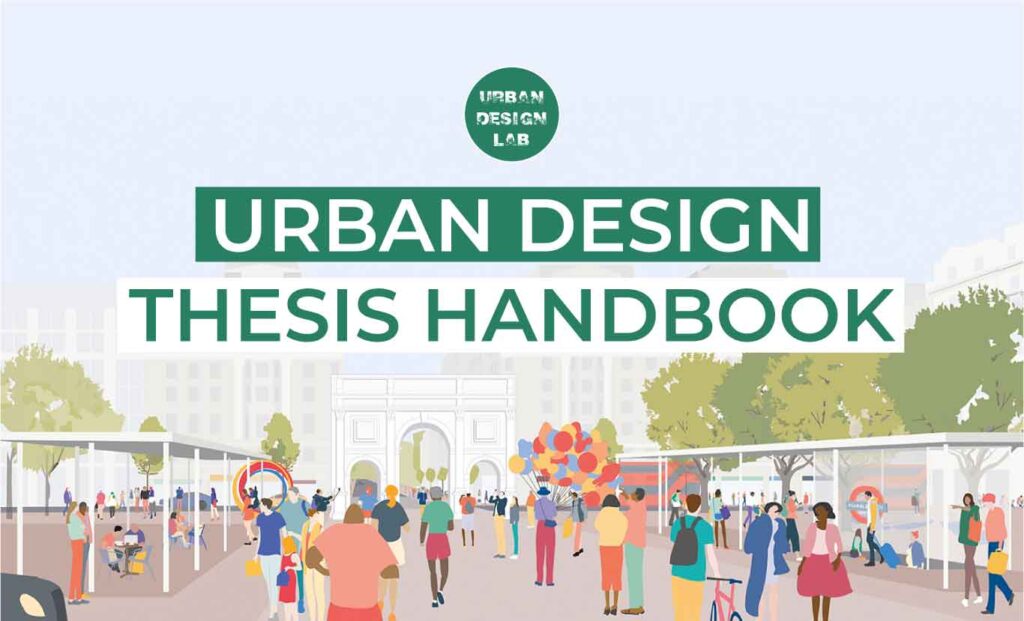
Modern city planning relies heavily on urban design. Rapid urbanisation has led to a rise in the complexity of city life, necessitating the creation of plans and policies to better regulate the interdependencies between people and places. Thesis projects in urban design provide students with a rare chance to participate in this process, allowing them to investigate novel approaches to resolving urban issues and expanding the bounds of conventional design practise.
An urban design thesis project calls for intensive study, critical thinking, and originality. Students face many obstacles on the road to writing a strong thesis, from choosing a topic to delivering a presentation. In this article, we’ll lay out a complete guide for students who want to write a thesis on urban design.
UDL Thesis Publication 2024
Curating the best thesis Globally !
Selecting a Topic
The first crucial step in writing an urban design thesis is choosing a topic. There are many different areas you might take your research in the large topic of urban design. It’s critical to pick a subject that complements your interests and expertise while tackling a pressing urban issue.
The first thing to consider when selecting a topic is your passion for a particular aspect of urban design. Do you find yourself drawn to sustainability, transportation, public spaces, or housing? Identifying your interests will help you narrow down your focus and identify areas that you’d like to explore further.
The viability of your issue must also be taken into account. This entails determining if there is sufficient prior study or data on which you can base your work. It’s also critical to consider whether you’ll have access to the data and tools you need to successfully finish your research.
It’s crucial to do a preliminary study to find any knowledge gaps before assessing viability. Seek out chances to advance the field by putting out fresh hypotheses, methods, or design concepts that tackle urban issues.
It’s also beneficial to think about your topic’s larger perspective. How does your subject relate to the broader debate over urban design? Exist any current issues or discussions on the subject? You can find research gaps and gain a more complex understanding of the urban issue you’re tackling by situating your research within the larger framework of urban design.
Furthermore, it’s critical to think about how your topic will be used in real-world situations. Will the applications of your research and design be applicable in the actual world? You may make sure that your work has relevance and impact outside of the academic world by taking into account the practical ramifications of your research.
Developing a Research Question
Making a research question that will direct your entire project is the following stage after choosing a topic for your urban design thesis. Your study objectives should be supported with a clear, quantifiable research question. It ought to provide your research and design efforts a distinct focus.
When creating a research topic, start by thinking about the issue you hope to resolve. What is the problem you’re trying to solve, and why is it important? What underlies this issue’s root causes? Your focus will be more focused and you’ll be able to spot places that need more research if you can identify the issue.
Next, consider the stakeholders involved. Who are the groups or individuals impacted by the urban problem you’re addressing? It’s crucial to understand the perspectives and needs of all stakeholders to develop effective and inclusive design solutions.
It’s also essential to take into account the methods already in use to solve the issue. What are the current approaches or tactics being employed to deal with the problem? What are their advantages and disadvantages? You can create original answers to urban challenges by determining the gaps in existing research or design thinking.
To ensure that your research question is specific and measurable, it’s essential to frame it in a way that can be answered through data collection and analysis. This means avoiding vague or broad questions and instead focusing on specific research objectives.
The emphasis and methodology of your thesis should be succinctly and clearly summarised in your research question. It ought to highlight the importance of the urban issue you’re tackling and the ground-breaking fixes you’re suggesting.
Consider the following when developing your research question:
- What is the problem you’re trying to solve?
- Who are the stakeholders involved?
- What are the existing approaches to addressing this problem?
- What are the gaps in current research or design thinking?
Your research question should provide a clear and concise summary of your thesis’s focus and approach.
Conducting Research
With your topic and research question established, the next step is to conduct research. Urban design theses require a combination of qualitative and quantitative research, including site analysis, literature reviews, and case studies.
Site analysis is a crucial component of urban design research. It involves observing and documenting the physical, social, and cultural features of the site you’re studying. This information will inform your design decisions and help you understand the site’s potential.
Literature reviews and case studies provide context for your research question. They allow you to explore existing research and design strategies related to your topic, identifying gaps in current thinking and potential solutions.
Designing Solutions
The designing solutions or proposed strategies is the last part of an urban design thesis. To answer your research question and resolve the issue you’ve identified, you’ll do further study and draw up a set of design solutions. In consideration of the site’s physical and sociological conditions, the proposed solutions should be creative, doable, and applicable.
Drawings, diagrams, and models should all be part of your presentation of your design solutions. It’s crucial to articulate your design goals and the nature of the problem you’re trying to solve in a way that makes the case for your proposed solutions.
Final Presentation
A key part of an urban design thesis is creating the final presentation. It’s a chance to highlight the importance of your research, offer creative design solutions, and show that you understand the subject thoroughly. Consider the following to make your presentation compelling, educational, and engaging:
Use clear and concise language:
Your presentation should be easy to understand, even for those who are not familiar with your research or urban design concepts. Use clear and concise language, avoid technical jargon, and explain any complex ideas in simple terms.
Focus on the most important aspects of your research and design process:
Your presentation should focus on the most critical aspects of your thesis, including the problem you’re addressing, your research question, your research methodology, and your design solutions. It’s important to be selective and highlight only the most significant findings and insights to ensure that your audience stays engaged.
Include visual aids to improve your presentation:
Diagrams, maps, photographs, and sketches can be used to show design ideas and increase the impact of your speech. Visuals should be used sparingly and deliberately, enhancing rather than detracting from your message.
Practice your presentation several times:
You should rehearse your presentation multiple times to make sure you are familiar with the content. You can get more at ease with your subject matter, lessen anxiety, and ensure that you can deliver your presentation easily and confidently by practising it multiple times. To get feedback and enhance your delivery, think about practising in front of a mirror or with friends or family.
Engage your audience:
Making a presentation engaging for your audience is essential. Encourage questions, offer chances for discussion, and be open to criticism. You can improve your thoughts, learn new information, and eventually reinforce your thesis by involving your audience.
Urban design theses give students a special chance to actually change the urban landscape. Students can undertake in-depth study and produce workable answers to critical urban problems by choosing a pertinent and practicable topic and formulating a clear research question.
It’s crucial to stay focused and methodical throughout the thesis-writing process. Successful urban design theses must incorporate extensive research, data analysis, and consideration of stakeholders’ demands.
To sum up, writing an urban design thesis demands commitment, ingenuity, and a desire to improve urban surroundings. Students can affect change in the urban design industry by embracing the difficulties and chances given by this process.
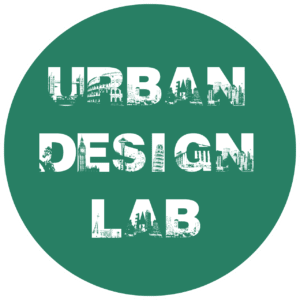
Urban Design Lab
About the author.
This is the admin account of Urban Design Lab. This account publishes articles written by team members, contributions from guest writers, and other occasional submissions. Please feel free to contact us if you have any questions or comments.
Related articles
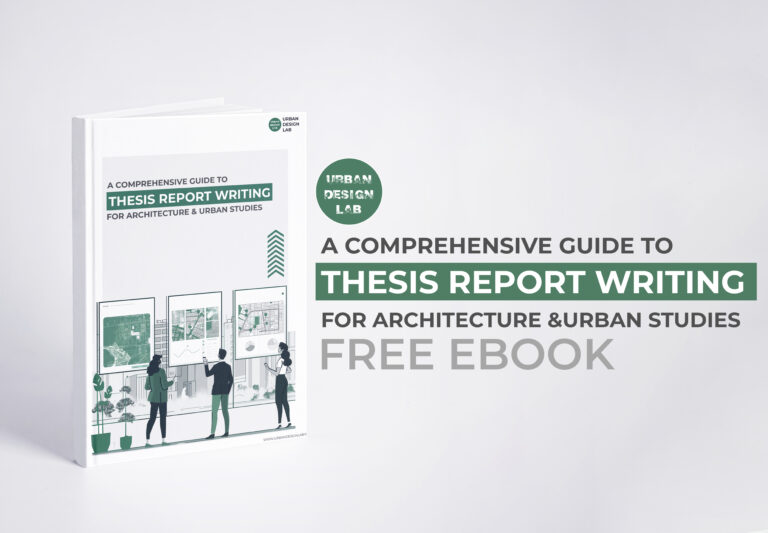
Architecture Thesis Report Writing Guide
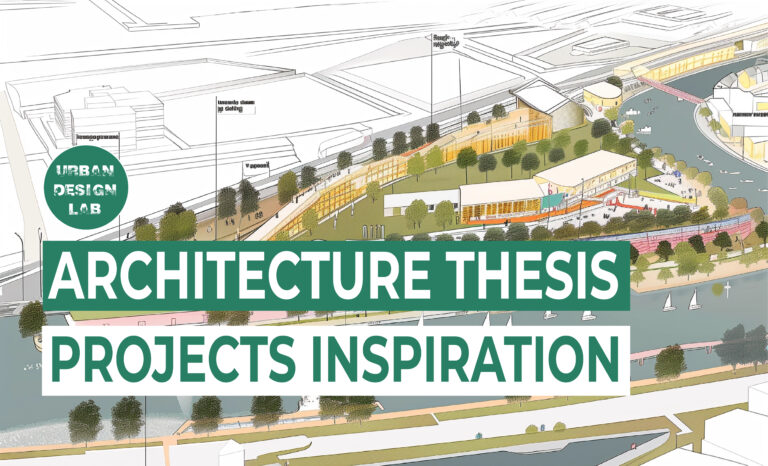
Architecture Thesis Projects Inspiration 2024

The Others Nest | Unleashing Urban Wonder in Chengdu
Curating the Best Thesis Projects Globally !
Leave a Reply
Udl photoshop, masterclass.
Decipher the secrets of
Urban Mapping and 3D Visualisation
Session Dates
8th-9th June, 2024
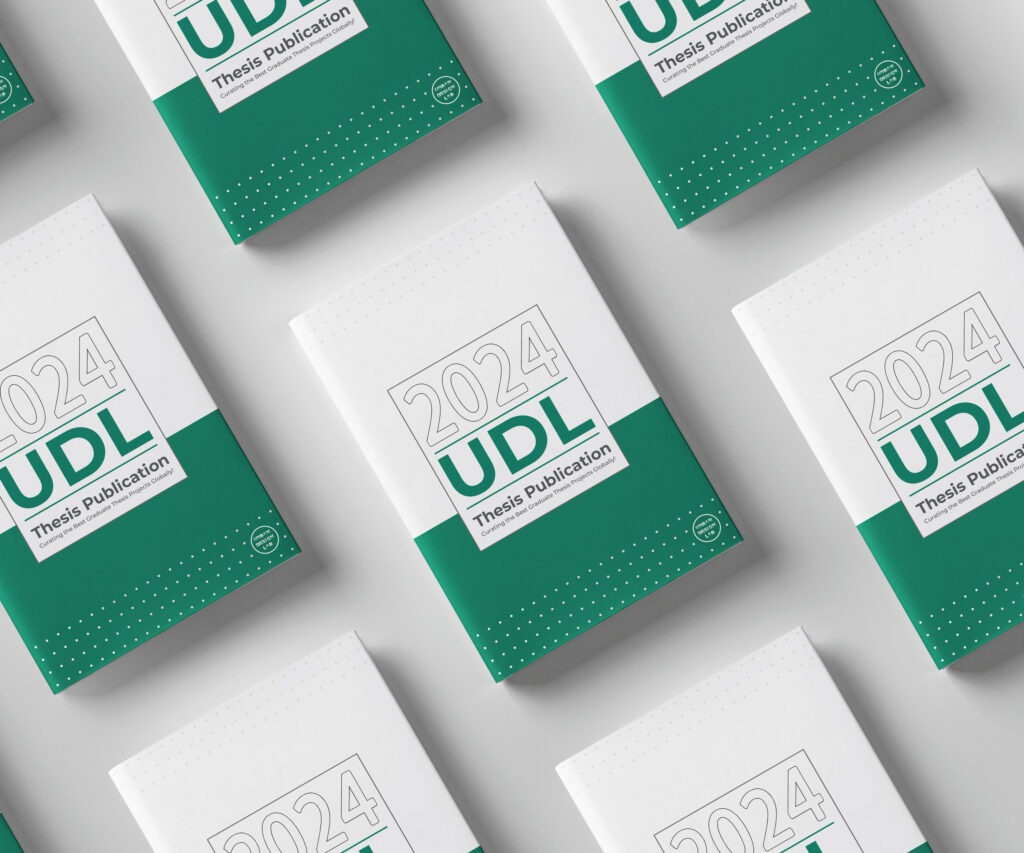
UDL Thesis Publication
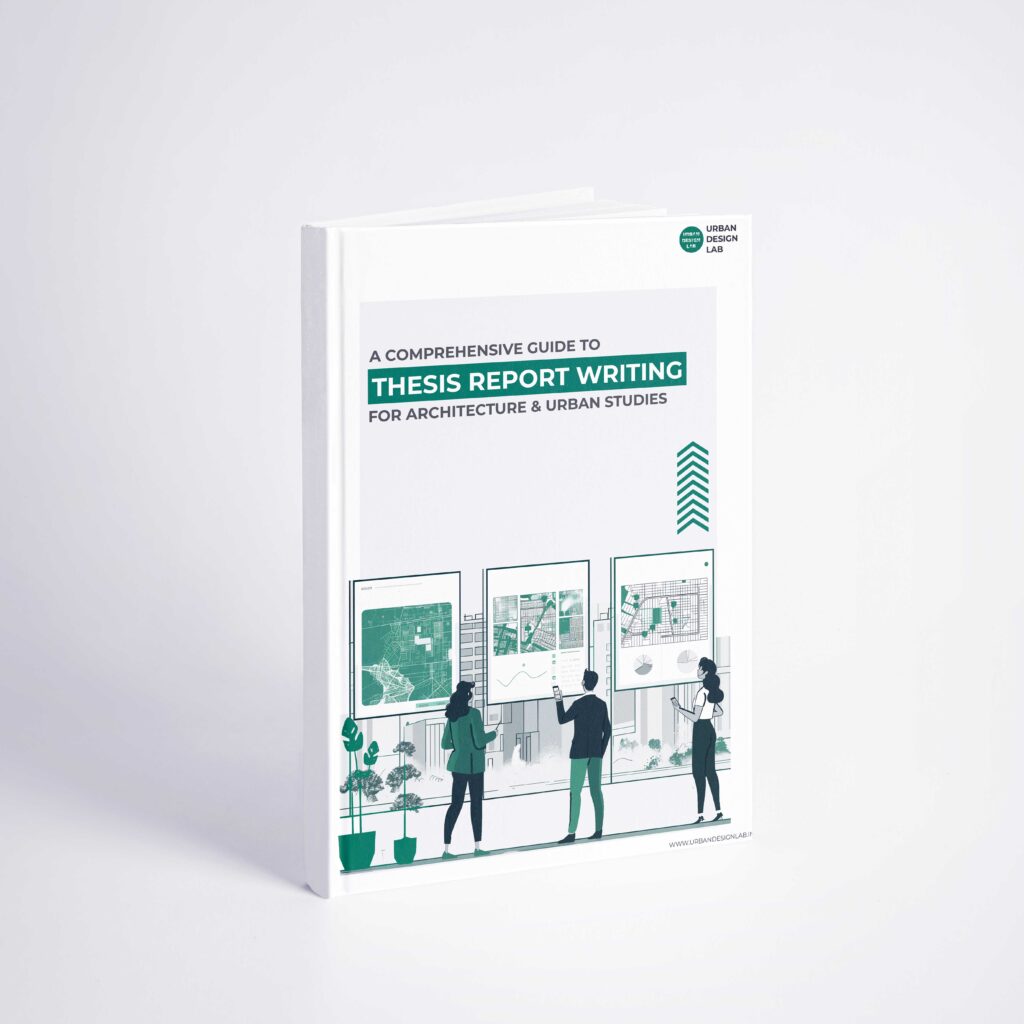
A Comprehensive Guide
Thesis report writing for architecture and urban studies.

Urban Design | Landscape| Planning
Join the largest social media community.

STAY UPDATED
Join our whatsapp group.

Recent Posts
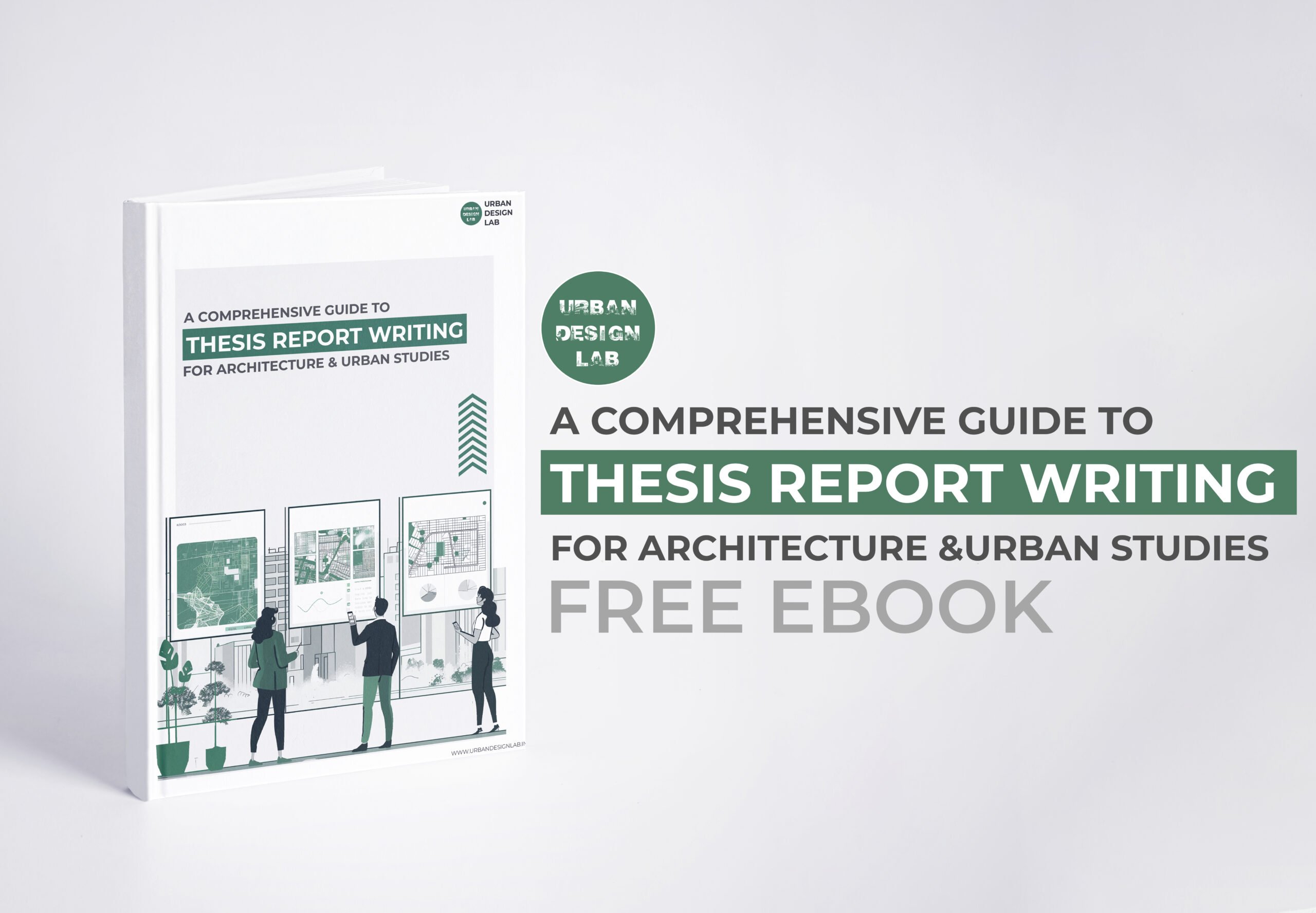
- Article Posted: May 5, 2024
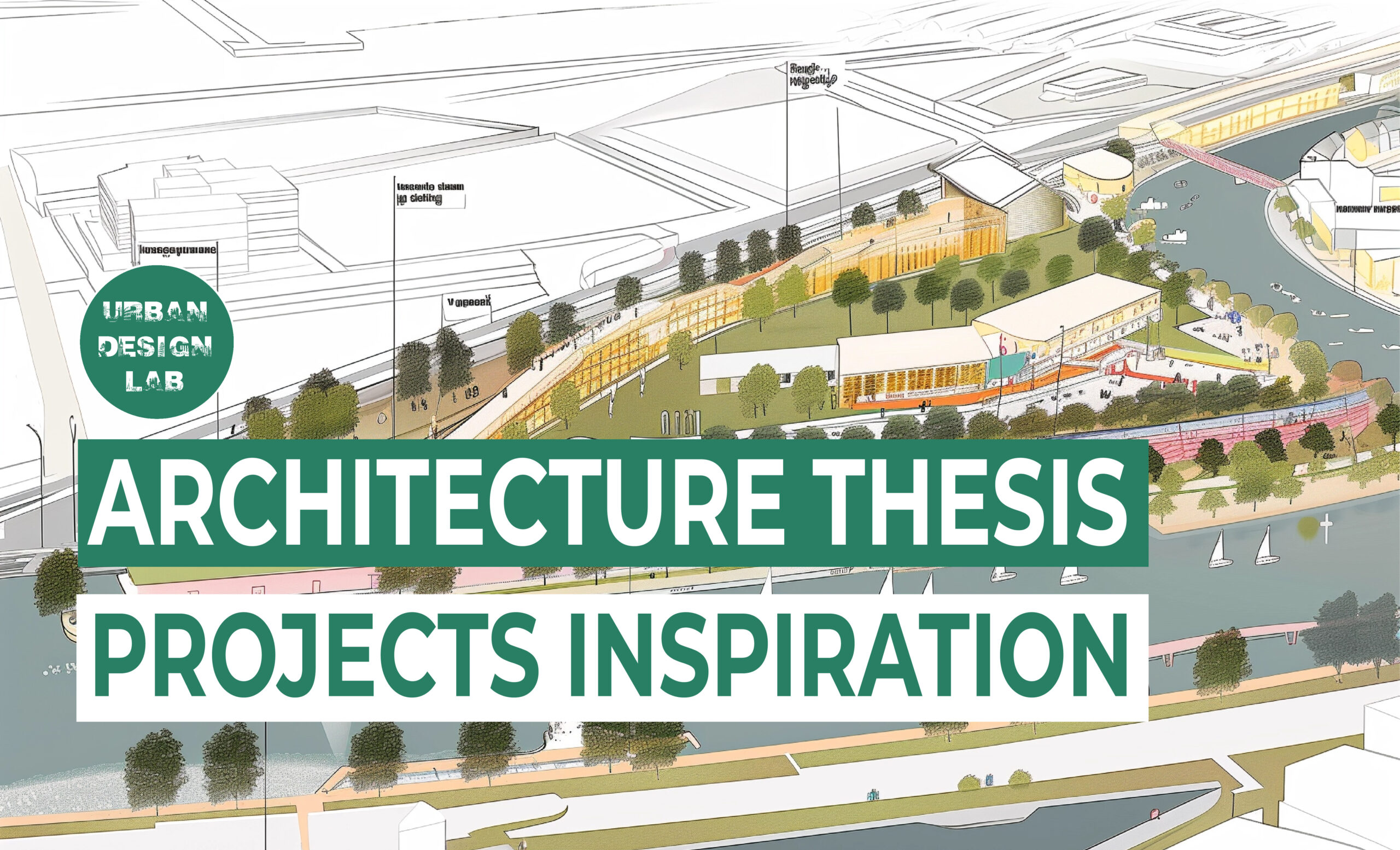
- Article Posted: May 3, 2024
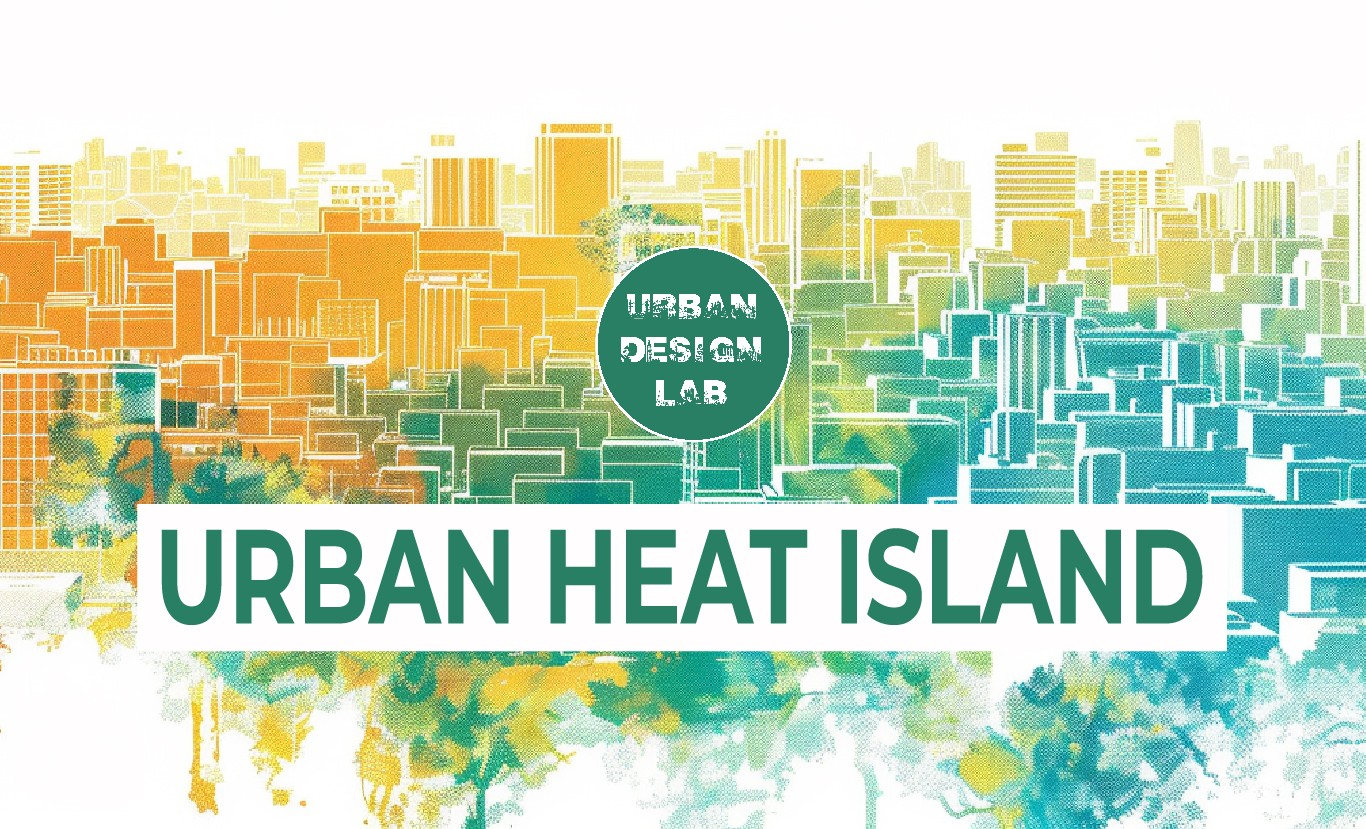
What Is an Urban Heat Island?
- Article Posted: March 28, 2024
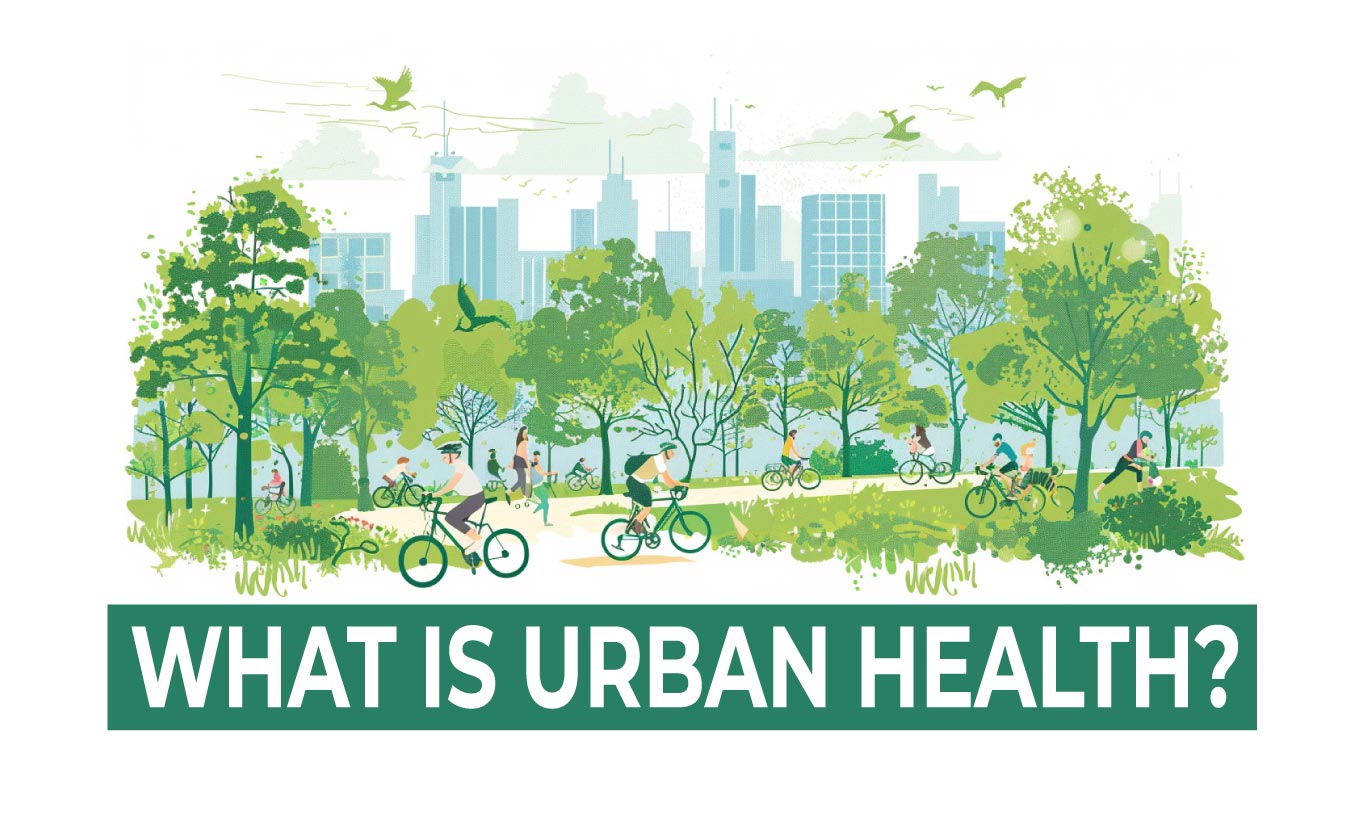
What is urban Health?
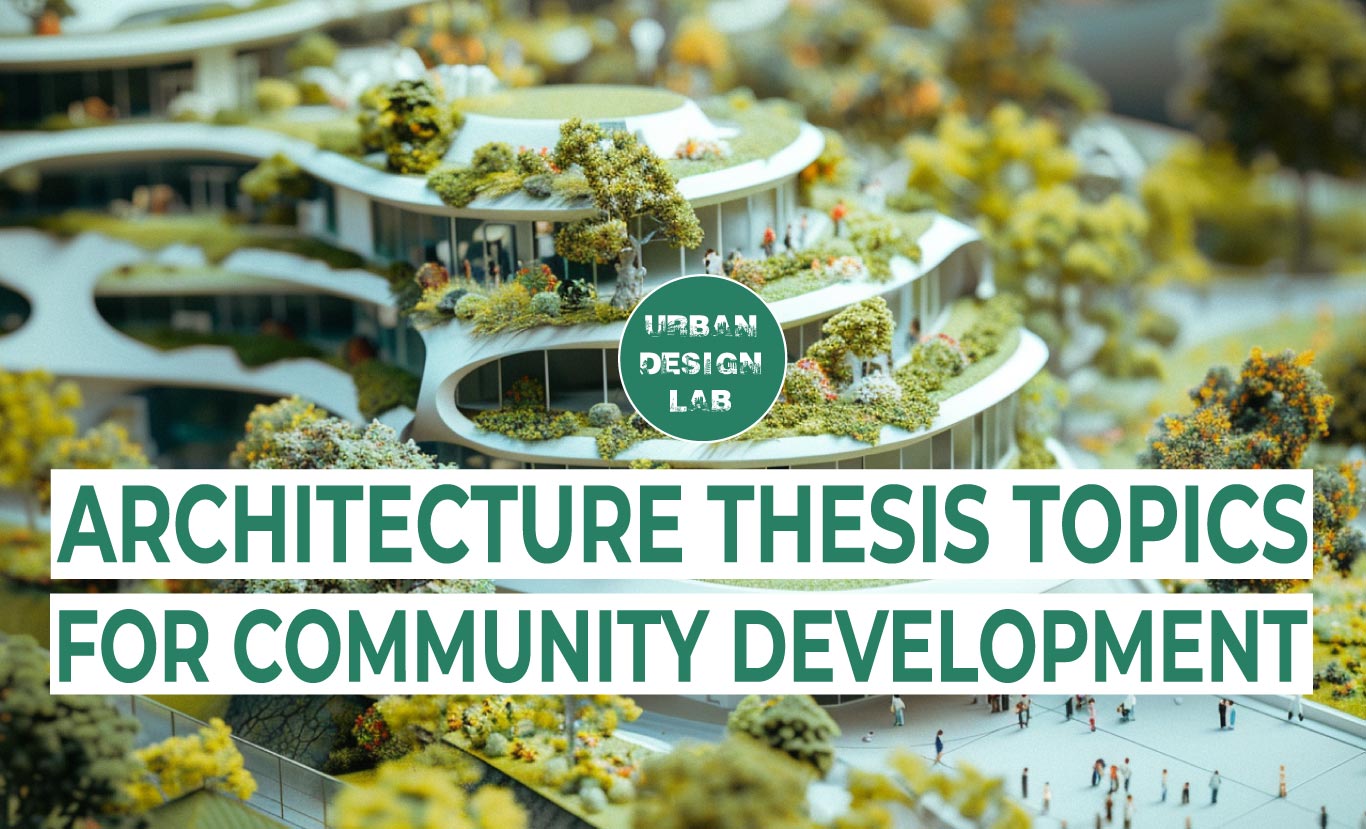
Top Architecture Thesis Topics for Community Development
- Article Posted: March 26, 2024

Architecture Thesis Topics for the Digital Age
- Article Posted: March 25, 2024

15 Inspirational Riverfront Development Case Studies
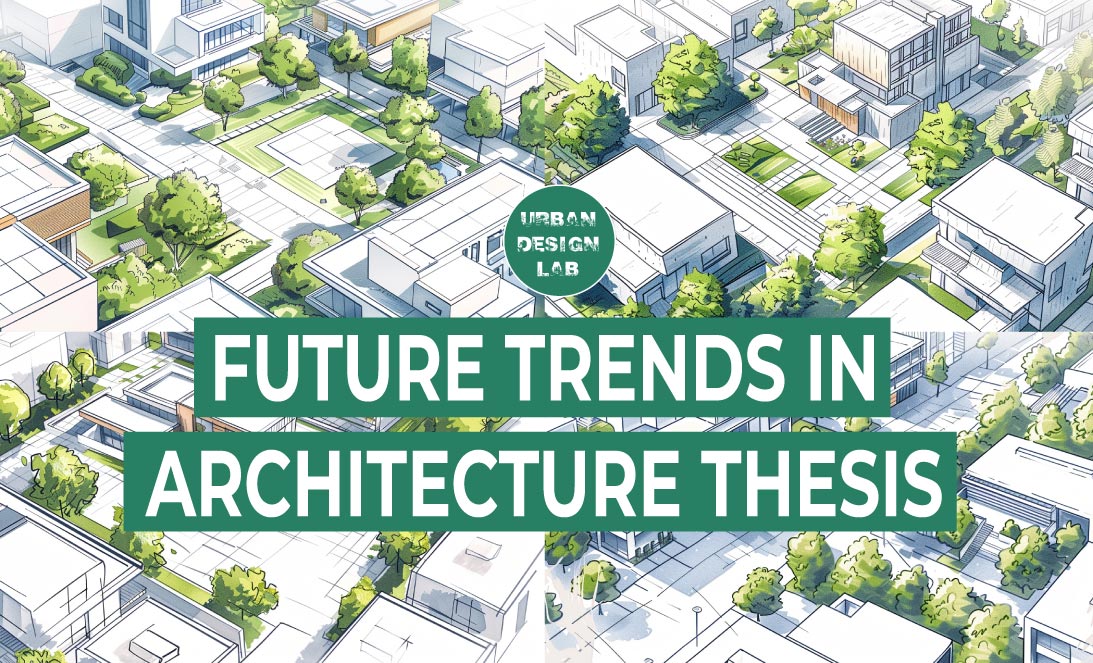
Future Trends in Architecture Thesis
- Article Posted: March 24, 2024
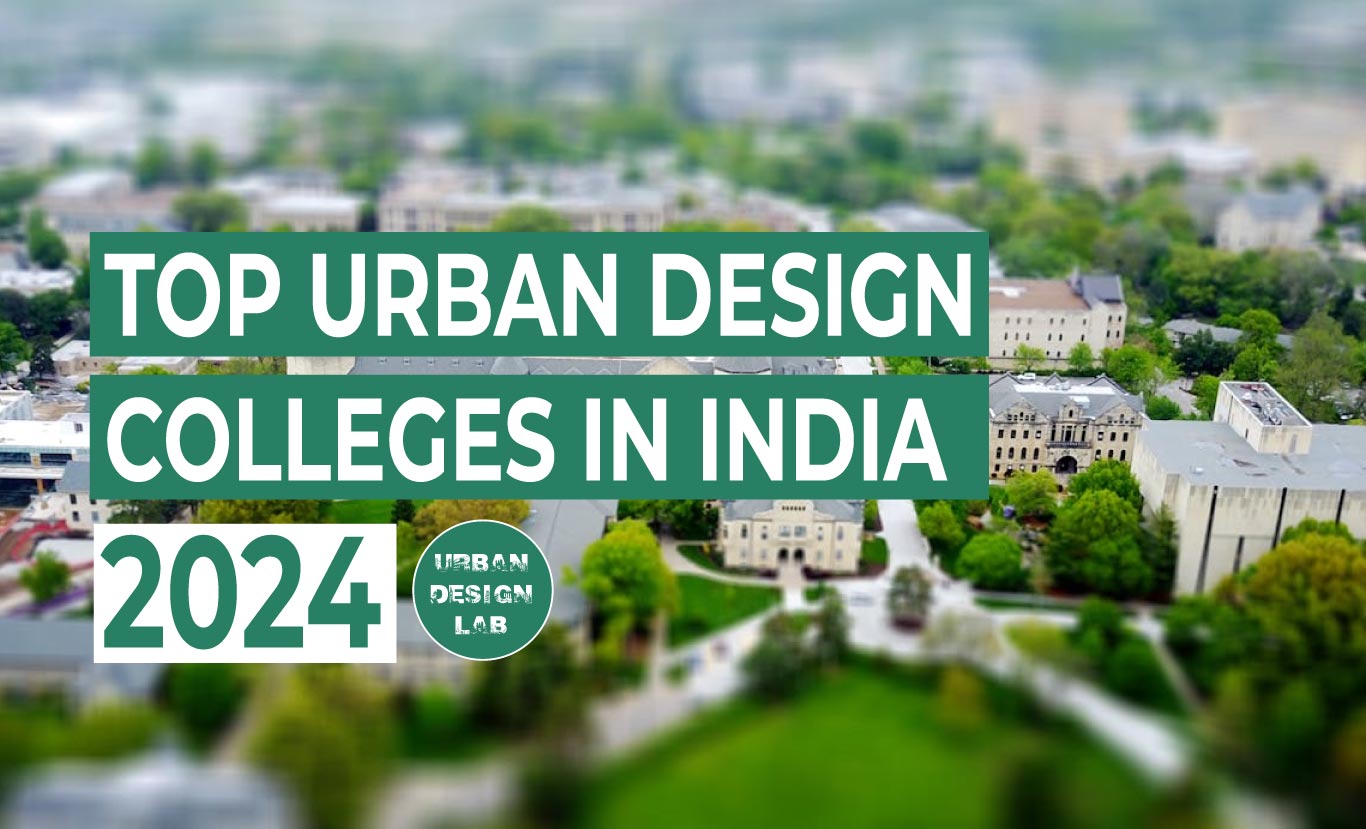
Top Urban Design Colleges in India – 2024
- Article Posted: March 18, 2024
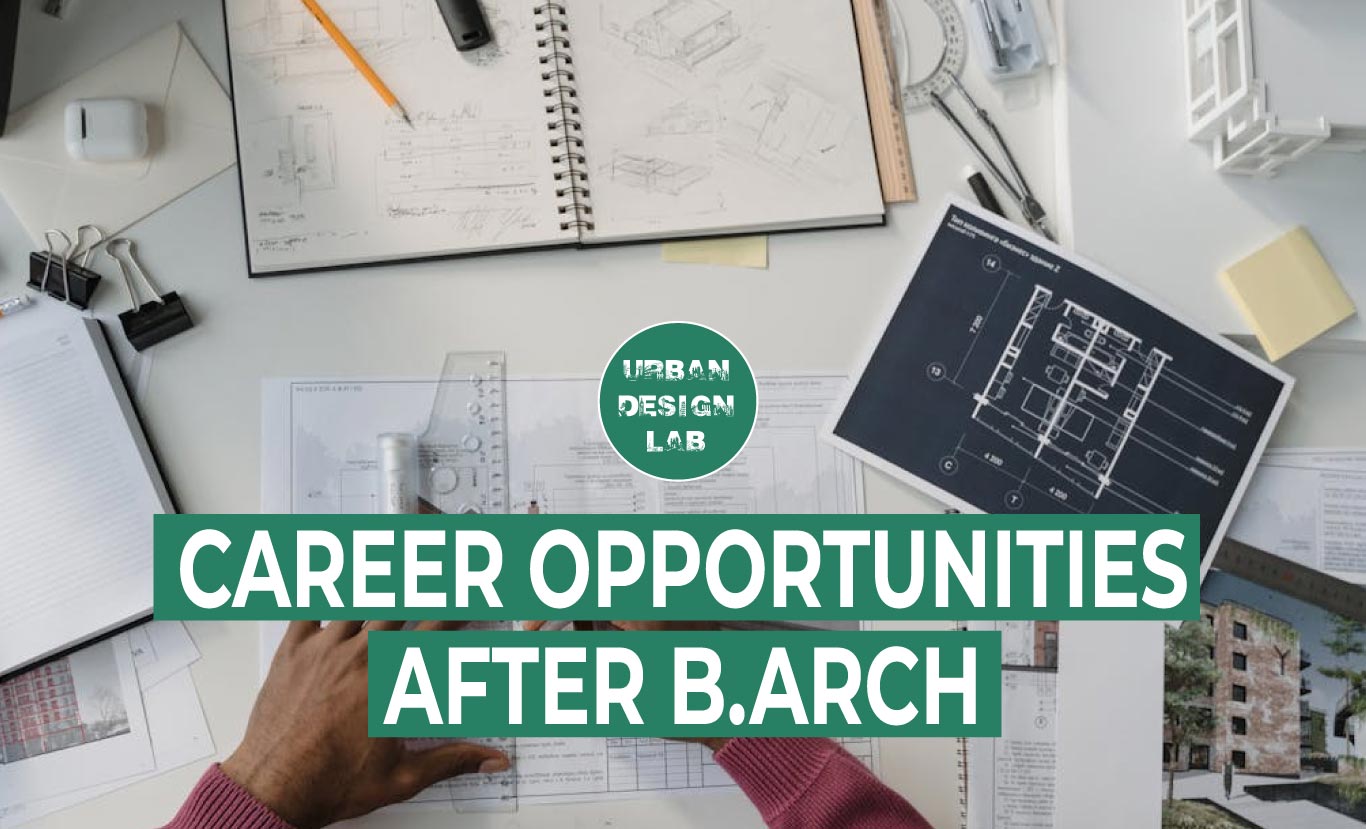
Career Opportunities After B.Arch
- Article Posted: March 17, 2024
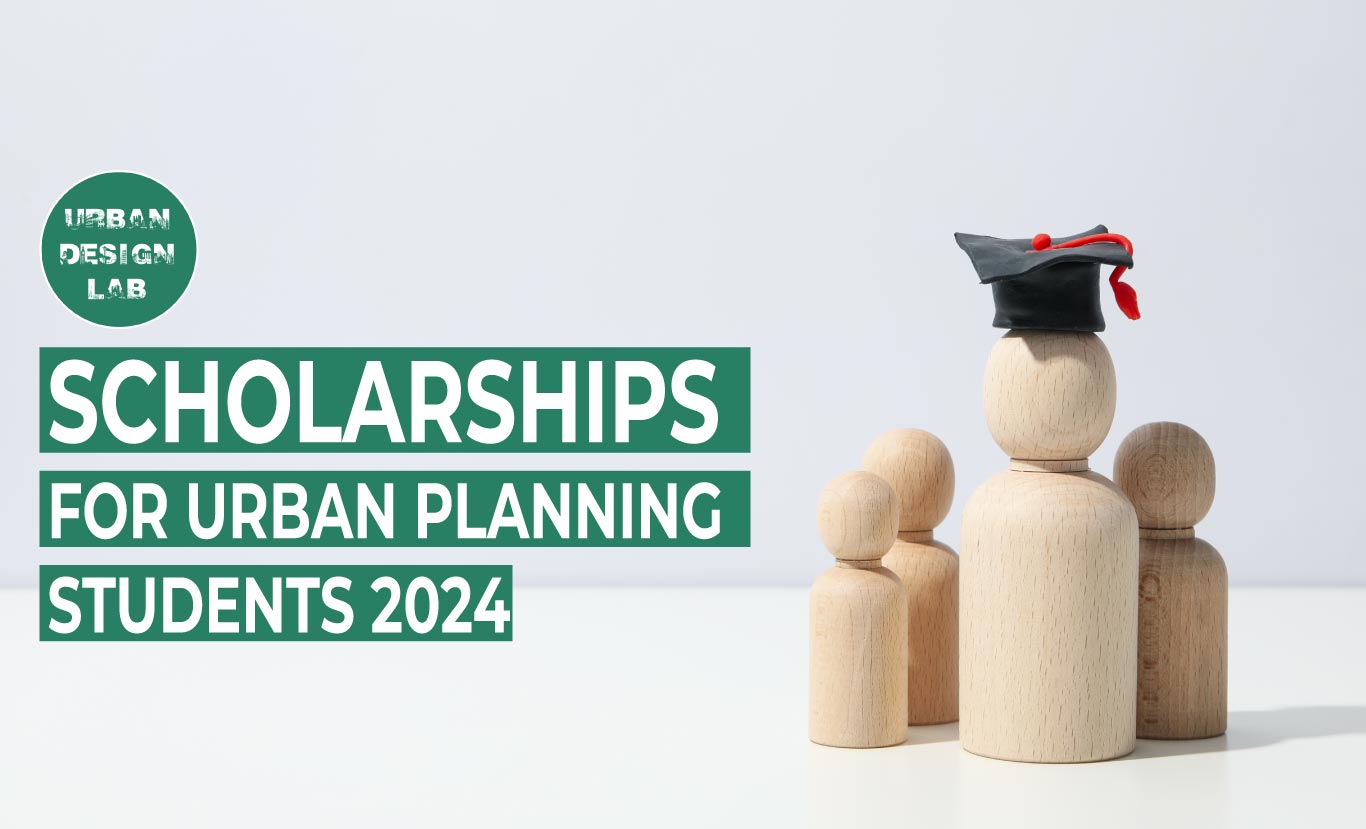
Scholarships for Urban Planning Students 2024
- Article Posted: February 28, 2024
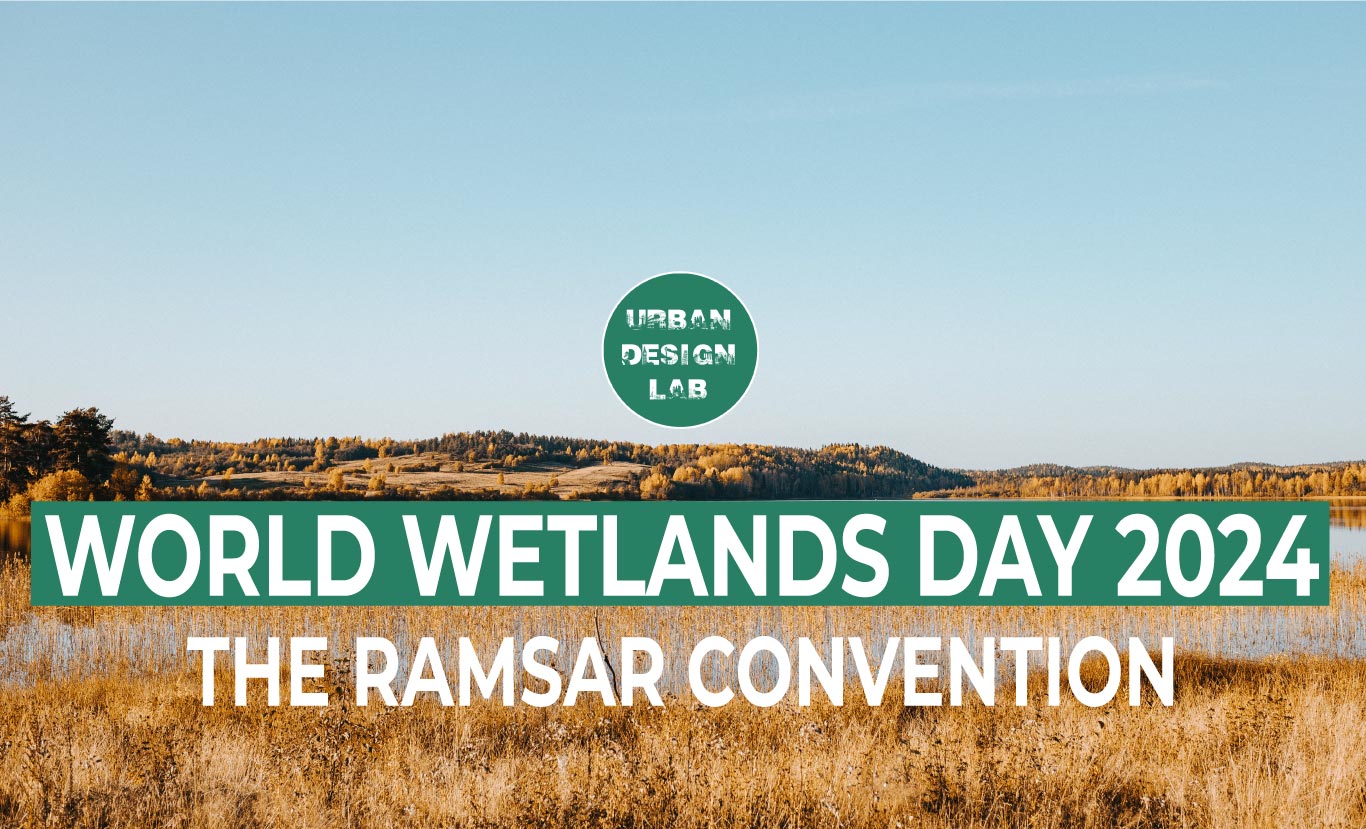
World Wetlands Day 2024 | The Ramsar Convention
- Article Posted: February 3, 2024
Sign up for our Newsletter
“Let’s explore the new avenues of Urban environment together “
© 2019 UDL Education Pvt. Ltd. All Rights Reserved.

Privacy Overview
A comprehensive guide (free e-book), a comprehensive guide to thesis report writing for architecture and urban studies.
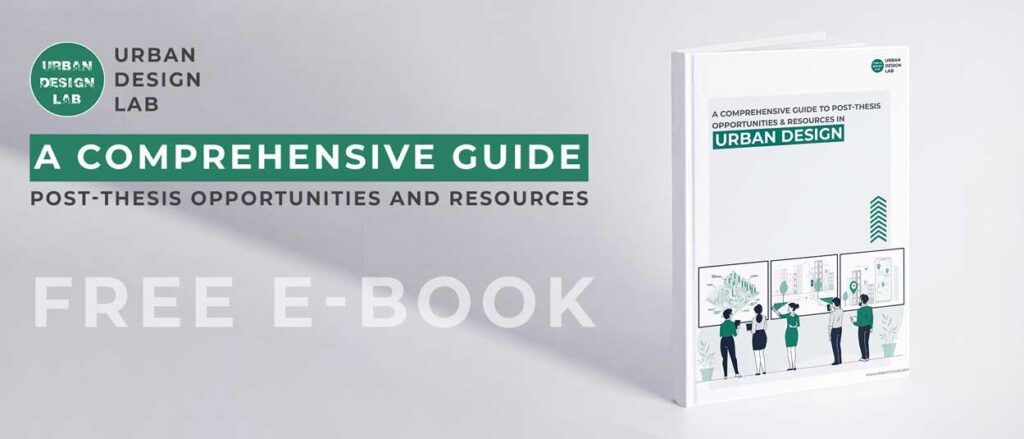
FLEET LIBRARY | Research Guides
Rhode island school of design, index to furniture design graduate theses: subject.
- Thesis Year / Student Name
- Across Departments
- By Department
Browse by subject
Architecture
Art - economic aspects
Art, Chinese
Art, Slavic
Art and music
Art and society
Art objects
Artists and community
Artists - Guatemala
Artists' materials
Cabinetwork
Chair design
Children's furniture
Color-philosophy
Comic books
Commercial products
Community arts projects
Compulsive behavior
Computer-aided design
Conceptual art
Consumption
Creation (Literary, artistic, etc.)
Creative thinking
Design - environmental aspects
Design - methodology
Design - philosophy
Design - psychological aspects
Design - social aspects
Design and technology
Environment
Ethnic identity
Fairy tales in art
Folds (Form)
Form (Aesthetics)
Found objects (Art)
Furniture industry
Furniture making - philosophy
Furniture - materials
Green products
Hospitality
Human ecology
Installations (Art)
Interior decoration
Lamps - design
Lighting, architectural and decorative
Mental health
Modular construction
Multiculturalism
Nature (Aesthetics)
Object (Aesthetics)
Object (Philosophy)
Otsojay, Manuel
Painted furniture
Personal belongings
Philosophy of nature
Philosophy, Taoist
Physical fitness
Place (Philosophy)
Popular culture
Poz, Mario Roberto Dal
Product life cycle
Production (economic theory)
Public spaces
Qi (Chinese philosophy)
Recycled products
Reflection (Optics)
Refuse as art material
Repetitive patterns
Ritual in art
Seating (Furniture)
Senses and sensation
Sitting position
Size perception
Social media
Sound in art
Sustainable design
Tables - design
Transitional objects
Urban renewal
Video games
Vicente, Apolonio
Vicente, Vinicio
Violence in art
Weaving - technique
Wit and humor in art
Wood sculpture
Woodwork patterns
Zen Buddhism
- Next: Thesis Year / Student Name >>
- Last Updated: May 21, 2024 6:41 PM
- URL: https://risd.libguides.com/furntheses

- USF Research
- USF Libraries
Digital Commons @ USF > College of Engineering > Mechanical Engineering > Theses and Dissertations
Mechanical Engineering Theses and Dissertations
Theses/dissertations from 2023 2023.
Metachronal Locomotion: Swimming, Scaling, and Schooling , Kuvvat Garayev
A Human-in-the-Loop Robot Grasping System with Grasp Quality Refinement , Tian Tan
Theses/Dissertations from 2022 2022
Health Effects of Oil Spills and Dispersal of Oil Droplets and Zooplankton by Langmuir Cells , Sanjib Gurung
Estimating the As-Placed Grout Volume of Auger Cast Piles , Tristen Mee
Hybrid RANS-LES Hemolytic Power Law Modeling of the FDA Blood Pump , Joseph Tarriela
Theses/Dissertations from 2021 2021
Dynamic Loading Directed Neural Stem Cell Differentiation , Abdullah Revaha Akdemir
An Investigation of Cross-links on Crystallization and Degradation in a Novel, PhotoCross-linkable Poly (Lactic Acid) System , Nicholas Baksh
A Framework to Aid Decision Making for Smart Manufacturing Technologies in Small-and Medium-Sized Enterprises , Purvee Bhatia
Formation of Gas Jets and Vortex Rings from Bursting Bubbles: Visualization, Kinematics, and Fluid Dynamics , Ali A. Dasouqi
Development of Carbon and Silicon Carbide Based Microelectrode Implantable Neural Interfaces , Chenyin Feng
Sulfate Optimization in the Cement-Slag Blended System Based on Calorimetry and Strength Studies , Mustafa Fincan
Interrelation of Thermal Stimulation with Haptic Perception, Emotion, and Memory , Mehdi Hojatmadani
Modeling the Ambient Conditions of a Manufacturing Environment Using Computational Fluid Dynamics (CFD) , Yang Liu
Flow Visualization and Aerosol Characterization of Respiratory Jets Exhaled from a Mannequin Simulator , Sindhu Reddy Mutra
A Constitutive-Based Deep Learning Model for the Identification of Active Contraction Parameters of the Left Ventricular Myocardium , Igor Augusto Paschoalotte Nobrega
Sensible/Latent Hybrid Thermal Energy Storage for the Supercritical Carbon Dioxide Brayton Cycle , Kelly Osterman
Evaluating the Performance of Devices Engineering to Quantify the FARS Test , Harsh Patel
Event-Triggered Control Architectures for Scheduling Information Exchange in Uncertain and Multiagent Systems , Stefan Ristevski
Theses/Dissertations from 2020 2020
Experimental Investigation of Liquid Height Estimation and Simulation Verification of Bolt Tension Quantification Using Surface Acoustic Waves , Hani Alhazmi
Investigation of Navigation Systems for Size, Cost, and Mass Constrained Satellites , Omar Awad
Simulation and Verification of Phase Change Materials for Thermal Energy Storage , Marwan Mosubah Belaed
Control of a Human Arm Robotic Unit Using Augmented Reality and Optimized Kinematics , Carlo Canezo
Manipulation and Patterning of Mammalian Cells Using Vibrations and Acoustic Forces , Joel Cooper
Stable Adaptive Control Systems in the Presence of Unmodeled and Actuator Dynamics , Kadriye Merve Dogan
The Design and Development of a Wrist-Hand Orthosis , Amber Gatto
ROBOAT - Rescue Operations Bot Operating in All Terrains , Akshay Gulhane
Mitigation of Electromigration in Metal Interconnects Passivated by Ångstrom-Thin 2D Materials , Yunjo Jeong
Swimming of Pelagic Snails: Kinematics and Fluid Dynamics , Ferhat Karakas
Functional Gait Asymmetries Achieved Through Modeling and Understanding the Interaction of Multiple Gait Modulations , Fatemeh Rasouli
Distributed Control of Multiagent Systems under Heterogeneity , Selahattin Burak Sarsilmaz
Design and Implementation of Intuitive Human-robot Teleoperation Interfaces , Lei Wu
Laser Micropatterning Effects on Corrosion Resistance of Pure Magnesium Surfaces , Yahya Efe Yayoglu
Theses/Dissertations from 2019 2019
Synthesis and Characterization of Molybdenum Disulfide/Conducting Polymer Nanocomposite Materials for Supercapacitor Applications , Turki S. Alamro
Design of Shape-Morphing Structures Consisting of Bistable Compliant Mechanisms , Rami Alfattani
Low Temperature Multi Effects Desalination-Mechanical Vapor Compression Powered by Supercritical Organic Rankine Cycle , Eydhah Almatrafi
Experimental Results of a Model Reference Adaptive Control Approach on an Interconnected Uncertain Dynamical System , Kemberly Cespedes
Modeling of Buildings with Electrochromic Windows and Thermochromic Roofs , Hua-Ting Kao
Design and Testing of Experimental Langmuir Turbulence Facilities , Zongze Li
Solar Thermal Geothermal Hybrid System With a Bottoming Supercritical Organic Rankine Cycle , Francesca Moloney
Design and Testing of a Reciprocating Wind Harvester , Ahmet Topcuoglu
Distributed Spatiotemporal Control and Dynamic Information Fusion for Multiagent Systems , Dzung Minh Duc Tran
Controlled Wetting Using Ultrasonic Vibration , Matthew A. Trapuzzano
On Distributed Control of Multiagent Systems under Adverse Conditions , Emre Yildirim
Theses/Dissertations from 2018 2018
Synthesis and Characterization of Alpha-Hematite Nanomaterials for Water-Splitting Applications , Hussein Alrobei
Control of Uncertain Dynamical Systems with Spatial and Temporal Constraints , Ehsan Arabi
Simulation and Optimization of a Sheathless Size-Based Acoustic Particle Separator , Shivaraman Asoda
Simulation of Radiation Flux from Thermal Fluid in Origami Tubes , Robert R. Bebeau
Toward Verifiable Adaptive Control Systems: High-Performance and Robust Architectures , Benjamin Charles Gruenwald
Developing Motion Platform Dynamics for Studying Biomechanical Responses During Exercise for Human Spaceflight Applications , Kaitlin Lostroscio
Design and Testing of a Linear Compliant Mechanism with Adjustable Force Output , William Niemeier
Investigation of Thermal History in Large Area Projection Sintering, an Additive Manufacturing Technology , Justin Nussbaum
Acoustic Source Localization with a VTOL sUAV Deployable Module , Kory Olney
Defect Detection in Additive Manufacturing Utilizing Long Pulse Thermography , James Pierce
Design and Testing of a Passive Prosthetic Ankle Foot Optimized to Mimic an Able-Bodied Gait , Millicent Schlafly
Simulation of Turbulent Air Jet Impingement for Commercial Cooking Applications , Shantanu S. Shevade
Materials and Methods to Fabricate Porous Structures Using Additive Manufacturing Techniques , Mohsen Ziaee
Theses/Dissertations from 2017 2017
Large Area Sintering Test Platform Design and Preliminary Study on Cross Sectional Resolution , Christopher J. Gardiner
Enhanced Visible Light Photocatalytic Remediation of Organics in Water Using Zinc Oxide and Titanium Oxide Nanostructures , Srikanth Gunti
Heat Flux Modeling of Asymmetrically Heated and Cooled Thermal Stimuli , Matthew Hardy
Simulation of Hemiparetic Function Using a Knee Orthosis with Variable Impedance and a Proprioception Interference Apparatus , Christina-Anne Kathleen Lahiff
Synthesis, Characterization, and Application of Molybdenum Oxide Nanomaterials , Michael S. McCrory
Effects of Microstructure and Alloy Concentration on the Corrosion and Tribocorrosion Resistance of Al-Mn and WE43 Mg Alloys , Hesham Y. Saleh Mraied
Novel Transducer Calibration and Simulation Verification of Polydimethylsiloxane (PDMS) Channels on Acoustic Microfluidic Devices , Scott T. Padilla
Force Compensation and Recreation Accuracy in Humans , Benjamin Rigsby
Experimental Evaluation of Cooling Effectiveness and Water Conservation in a Poultry House Using Flow Blurring ® Atomizers , Rafael M. Rodriguez
Media Velocity Considerations in Pleated Air Filtration , Frederik Carl Schousboe
Orthoplanar Spring Based Compliant Force/Torque Sensor for Robot Force Control , Jerry West
Experimental Study of High-Temperature Range Latent Heat Thermal Energy Storage , Chatura Wickramaratne
Theses/Dissertations from 2016 2016
Al/Ti Nanostructured Multilayers: from Mechanical, Tribological, to Corrosion Properties , Sina Izadi
Molybdenum Disulfide-Conducting Polymer Composite Structures for Electrochemical Biosensor Applications , Hongxiang Jia
Waterproofing Shape-Changing Mechanisms Using Origami Engineering; Also a Mechanical Property Evaluation Approach for Rapid Prototyping , Andrew Jason Katz
Hydrogen Effects on X80 Steel Mechanical Properties Measured by Tensile and Impact Testing , Xuan Li
Application and Analysis of Asymmetrical Hot and Cold Stimuli , Ahmad Manasrah
Droplet-based Mechanical Actuator Utilizing Electrowetting Effect , Qi Ni
Experimental and Computational Study on Fracture Mechanics of Multilayered Structures , Hai Thanh Tran
Designing the Haptic Interface for Morse Code , Michael Walker
Optimization and Characterization of Integrated Microfluidic Surface Acoustic Wave Sensors and Transducers , Tao Wang
Corrosion Characteristics of Magnesium under Varying Surface Roughness Conditions , Yahya Efe Yayoglu
Theses/Dissertations from 2015 2015
Carbon Dioxide (CO 2 ) Emissions, Human Energy, and Cultural Perceptions Associated with Traditional and Improved Methods of Shea Butter Processing in Ghana, West Africa , Emily Adams
Experimental Investigation of Encapsulated Phase Change Materials for Thermal Energy Storage , Tanvir E. Alam
Design Of Shape Morphing Structures Using Bistable Elements , Ahmad Alqasimi
Heat Transfer Analysis of Slot Jet Impingement onto Roughened Surfaces , Rashid Ali Alshatti
Systems Approach to Producing Electrospun Polyvinylidene Difluoride Fiber Webs with Controlled Fiber Structure and Functionality , Brian D. Bell
Self-Assembly Kinetics of Microscale Components: A Parametric Evaluation , Jose Miguel Carballo
Measuring Polydimethylsiloxane (PDMS) Mechanical Properties Using Flat Punch Nanoindentation Focusing on Obtaining Full Contact , Federico De Paoli
A Numerical and Experimental Investigation of Flow Induced Noise In Hydraulic Counterbalance Valves , Mutasim Mohamed Elsheikh
An Experimental Study on Passive Dynamic Walking , Philip Andrew Hatzitheodorou
Use of Anaerobic Adhesive for Prevailing Torque Locking Feature on Threaded Product , Alan Hernandez
Viability of Bismuth as a Green Substitute for Lead in Jacketed .357 Magnum Revolver Bullets , Joel A. Jenkins
A Planar Pseudo-Rigid-Body Model for Cantilevers Experiencing Combined Endpoint Forces and Uniformly Distributed Loads Acting in Parallel , Philip James Logan
Kinematic Control of Redundant Mobile Manipulators , Mustafa Mashali
Passive Symmetry in Dynamic Systems and Walking , Haris Muratagic
Mechanical Properties of Laser-Sintered-Nylon Diamond Lattices , Clayton Neff
Design, Fabrication and Analysis of a Paver Machine Push Bar Mechanism , Mahendra Palnati
Synthesis, Characterization, and Electrochemical Properties of Polyaniline Thin Films , Soukaina Rami
A Technical and Economic Comparative Analysis of Sensible and Latent Heat Packed Bed Storage Systems for Concentrating Solar Thermal Power Plants , Jamie Trahan
Use of FDM Components for Ion Beam and Vacuum Applications , Eric Miguel Tridas
The Development of an Adaptive Driving Simulator , Sarah Marie Tudor
Dual 7-Degree-of-Freedom Robotic Arm Remote Teleoperation Using Haptic Devices , Yu-Cheng Wang
Ductility and Use of Titanium Alloy and Stainless Steel Aerospace Fasteners , Jarrod Talbott Whittaker
Advanced Search
- Email Notifications and RSS
- All Collections
- USF Faculty Publications
- Open Access Journals
- Conferences and Events
- Theses and Dissertations
- Textbooks Collection
Useful Links
- Rights Information
- SelectedWorks
- Submit Research
Home | About | Help | My Account | Accessibility Statement | Language and Diversity Statements
Privacy Copyright
University of Notre Dame
Department of Art, Art History, and Design
College of Arts and Letters
- Home ›
- News and Events ›
- News ›
Spring 2024 Thesis Exhibition Awards
Published: May 17, 2024
Author: Dept. Staff
Walter Beardsley Award (presented by the Raclin Murphy Museum of Art) Joe Matty
The Eugene M. Riley Prize in Photography Joe Matty
Senior BFA Awards
Emil Jacques Medal for Excellence in Studio Art Mae Harkins
Emil Jacques Medal for Excellence in Design Christina Sayut
Mabel L. Mountain Memorial Prize in Painting Jessica Stehlik
The Greif Prize in Studio Art or Design Katherine Gaylord
Radwan and Allan Riley Prize in Studio Art CJ Rodgers
Radwan and Allan Riley Prize in Art History Kendra Lyimo
Radwan and Allan Riley Prize in Design Payton Oliver
Barbara Roche Award of Excellence in Painting Jessica Stehlik
Judith A. Wrappe Memorial Award Katherine Gaylord Mae Harkins
Bill and Connie Greif Art Award Katherine Gaylord Mae Harkins Jessica Stehlik Christina Sayut Luis Sosa Manubes Julia Cutajar
Senior BA Honors Awards
Father Anthony J. Lauck, C.S.C. Awards Payton Oliver CJ Rodgers Mary Votava
Y+ Ventures – Their Thesis, What They Look In Founders, Seed Rounds And More Imran's Podcast: Startups | Product | Design | Venture Capital
In this episode, founders will find particularly valuable insights, as I've asked a series of pertinent questions over a succinct 30-minute span—information that could benefit both you and me as I consider launching my own startup. Firstly, a brief introduction: Y+ Ventures is a venture capital firm co-founded by Jing Kuang and Murray Newlands, seasoned investors boasting a combined 30 years of experience in the industry. In our discussion, I aimed to comprehensively explore several aspects of their operations: * The specific areas Y+ Ventures focuses on for investment. * A deeper dive into their investment thesis. * Insights into what makes a startup a standout investment opportunity, with a particular focus on the importance of the team. * A discussion on the various challenges within the startup space. * Finally, get some actionable advice and tips for founders—advice that is genuinely impactful. I hope you find this episode enlightening. Please note, I'm experimenting with the podcast's duration to achieve a more concise and commutable format. As episodes exceeding 30 minutes often feel too lengthy, I'm working towards making the content more accessible and engaging. Stay tuned for more streamlined and informative episodes. This is a public episode. If you would like to discuss this with other subscribers or get access to bonus episodes, visit imranspodcast.substack.com
- Episode Website
- More Episodes
- Imran Sheikh
Top Podcasts In Technology
- Share full article
Advertisement
Subscriber-only Newsletter
The Ethicist
Can i use a.i. to grade my students’ papers.
The magazine’s Ethicist columnist on artificial intelligence platforms, and whether it’s hypocritical for teachers to use these tools while forbidding students from doing the same.

By Kwame Anthony Appiah
I am a junior-high-school English teacher. In the past school year, there has been a significant increase in students’ cheating on writing assignments by using artificial intelligence. Our department feels that 13-year-old students will only become better writers if they practice and learn from the successes and challenges that come with that.
Recently our department tasked students with writing an argumentative essay, an assignment we supported by breaking down the process into multiple steps. The exercise took several days of class time and homework to complete. All of our students signed a contract agreeing not to use A.I. assistance, and parents promised to support the agreement by monitoring their children when they worked at home. Yet many students still used A.I.
Some of our staff members uploaded their grading rubric into an A.I.-assisted platform, and students uploaded their essays for assessment. The program admittedly has some strengths. Most notable, it gives students writing feedback and the opportunity to edit their work before final submission. The papers are graded within minutes, and the teachers are able to transfer the A.I. grade into their roll book.
I find this to be hypocritical. I spend many hours grading my students’ essays. It’s tedious work, but I feel that it’s my responsibility — if a student makes an effort to complete the task, they should have my undivided attention during the assessment process.
Here’s where I struggle: Should I embrace new technology and use A.I.-assisted grading to save time and my sanity even though I forbid my students from using it? Is it unethical for teachers to ask students not to use A.I. to assist their writing but then allow an A.I. platform to grade their work? — Name Withheld
From the Ethicist:
You have a sound rationale for discouraging your students from using A.I. to draft their essays. As with many other skills, writing well and thinking clearly will improve through practice. By contrast, you already know how to grade papers; you don’t need the practice.
What matters is whether an A.I.-assisted platform can reliably appraise and diagnose your students’ writing, providing the explanation and guidance these students need to improve. In theory, such tools — and I see that there are several on the market, including from major educational publishers — have certain advantages. The hope is that they can grade without inconsistency, without getting tired, without being affected by the expectations that surely affect those of us who hand-grade student work.
I notice you haven’t raised concerns about whether the platform provides reliable assessments; you’ll have to decide if it does. (If it isn’t quite up to snuff, it might become so in a year or two, so your question will persist.) Provided the platform does a decent job of assessment, though, I don’t see why you must do it all yourself. You should review the A.I.-annotated versions of your students’ writing, check that you agree with the output, and make notes of issues to bring up in class. But time saved in evaluating the papers might be better spent on other things — and by “better,” I mean better for the students. There are pedagogical functions, after all, that only you can perform.
In sum: It’s not hypocritical to use A.I. yourself in a way that serves your students well, even as you insist that they don’t use it in a way that serves them badly.
Readers Respond
The previous question was from a reader who asked about professional boundaries. He wrote: “I am a retired, married male psychiatrist. A divorced female former patient of mine contacted me recently, 45 years after her treatment ended. Would it be OK to correspond with her by email? Or is this a case of ‘once a patient, always a patient?’”
In his response, the Ethicist noted: “The relevant professional associations tend to have strictures that are specifically about sexual relationships with former patients. … In light of the potential for exploitation within the therapist-patient relationship, these rules are meant to maintain clear boundaries, protect patient welfare, uphold the integrity of the profession and eliminate any gray areas that could lead to ethical breaches. But though you do mention her marital status, and yours, you’re just asking about emailing her — about establishing friendly relations. The question for you is whether she might be harmed by this, whether whatever knowledge or trust gained from your professional relationship would shadow a personal one. Yes, almost half a century has elapsed since your professional relationship, but you still have to be confident that a correspondence with her clears this bar. If it does, you may email with a clear conscience.” ( Reread the full question and answer here. )
As always, I agree with the Ethicist. I would add that the letter writer’s former patient doesn’t realize that the therapist is actually two different people — the professional and the regular person underneath. Therapists portray their professional selves to their clients. The former client may be disappointed upon meeting the therapist outside of the professional context. Additionally, the feelings she has toward the therapist may be based on transference, and they would need to address that. — Annemarie
I am a clinical psychologist. While the Ethicist’s description of professional ethical boundaries is correct, there is more to the story, and I disagree with his conclusion. A very big question here is why this former patient contacted him after 45 years. That is a question that is best explored and answered within the context of a therapeutic relationship. He would be well- advised to respond in a kind and thoughtful way to convey the clear message that he is not available for ongoing communication, and he should suggest that she consult with another therapist if she feels that would be helpful. — Margaret
In my case, it was the therapist who reached out to me, seeking to establish a friendship several years after our sessions ended. I was surprised, but he shared that he had since experienced a similar personal tragedy to one I had explored with him in sessions. Since it had been several years since we saw each other professionally, I responded. There was never any hint of romantic or sexual interest. Still, as he continued to reach out to me, clearly desiring a friendship, it never felt right to me. It did feel unprofessional, as his knowledge of me was borne out of a relationship meant to be professional, never personal, as warmly as we might have felt during our sessions. I ended up being disappointed in him for seeking out my friendship. — Liam
I am a (semi)retired psychiatrist who has been practicing since 1974. In my opinion, “once a patient, always a patient” is correct. Establishing any type of personal relationship with a former patient could undo progress the patient may have made in treatment, and is a slippery slope toward blatantly unethical behavior. As psychiatrists, our responsibility is to work with patients in confronting and resolving issues that are preventing them from having a reality-based perception of their life. With such an outlook, they are more capable of establishing satisfying relationships with others. An ethical psychiatrist is not in the business of providing such satisfaction to his or her patients. — Roger
I think there is a difference between being friendly and being friends with a former client. As someone who used to attend therapy with a therapist I think dearly of, she made it clear to me that it was OK to send her emails with life updates after our therapeutic relationship ended. But beyond that, I think it would be inappropriate and uncomfortable to pursue a friendship with her, and vice versa, because of the patient-provider relationship that we previously had and the power dynamic that existed between us. The letter writer didn’t share the content of the email his former patient sent to him, but if it’s just a friendly life update, I think it’s fine to write back and thank her for sharing. Beyond that, I feel like it would be unprofessional to meet or pursue a deeper relationship. — Meghan
Kwame Anthony Appiah is The New York Times Magazine’s Ethicist columnist and teaches philosophy at N.Y.U. His books include “Cosmopolitanism,” “The Honor Code” and “The Lies That Bind: Rethinking Identity.” To submit a query: Send an email to [email protected]. More about Kwame Anthony Appiah

IMAGES
VIDEO
COMMENTS
Spring 2024. Thesis. INSURGENT GEOLOGY: Mineral Matters in the Arctic. by Melanie Louterbach (MLA I '24) "Insurgent Geology" is about oil, fossils, power, and people. Thesis. Spring 2024. Thesis. 2023 Peter Rice Prize: Sujie Park's "Material Alchemy". by Sujie Park (MArch I '23) — Recipient of the Peter Rice Prize.
Design Thesis — Case oriented Research. USO-Built Report Series 2:61-64. Quality criteria for an academic design thesis (MPhil and Doctorate-level), and other aca demic design output are formulated. Research in the program is executed by the re search-oriented disciplines of the department from the domains of the humanities,
A brief description of the thesis, including a title and summary of the project's rationale, methods, and relevance to urban planning and/or urban design. 2. A description of the format of the thesis. 3. A description of the devises or equipment needed to locate, access, and view the thesis. 4.
A research design is a strategy for answering your research question using empirical data. Creating a research design means making decisions about: Your overall research objectives and approach. Whether you'll rely on primary research or secondary research. Your sampling methods or criteria for selecting subjects. Your data collection methods.
While choosing an architectural thesis topic, it is best to pick something that aligns with your passion and interest as well as one that is feasible. Out of the large range of options, here are 20 architectural thesis topics. 1. Slum Redevelopment (Urban architecture) Slums are one of the rising problems in cities where overcrowding is pertinent.
design education as opposed to what practitioners consider the creative content of their domain. There is a direct correlation between what design academics consider creativity and its role in graphic design to be and what is taught. There is a strong bias towards style and visual embellishment at the expense of more creative problem solving.
01. Treat it like a design brief. "A great dissertation should be a designed artefact, and portfolio-worthy in its own right," says Burston. And like a design brief, it should be about solving a problem: "Make sure it has clearly stated aims, strong focus, and doesn't lack opinion or rhetoric," he adds. Best laptops for graphic design.
Thesis. 2023 Outstanding Design Engineering Project Award: Rebecca Brand and Caroline Fong's Jua: Cultivating Digital Knowledge Networks for Smallholder Farmers. by Rebecca Brand (MDE '23) and…. Thesis. Jock Herron, Faculty Advisor. Spring 2023. Thesis. 2023 James Templeton Kelley Prize: Deok Kyu Chung's "Boundaries of Everyday: walls ...
The design thesis is an independently driven creative work developed within a focused subject of inquiry and directed by architectural questions. It is carried out through intensive research, study, and design explorations, and culminates in a thoroughly developed architectural proposition. It is to be fully recorded in a final document.
When design students ask me for advice on picking a topic for a thesis, these are the six guidelines I give: Brainstorm topics based on what resources you have available to support you. If you ...
110 Fantastic Graphic Design Thesis Ideas To Succeed. Graphic Design is an art where professionals plan and practice creating visual and textual content to deliver messages. In today's world, it's the most innovative and most effective way for businesses to connect with their consumers. Graphic design has many forms, from a simple business ...
A good thesis has two parts. It should tell what you plan to argue, and it should "telegraph" how you plan to argue—that is, what particular support for your claim is going where in your essay. Steps in Constructing a Thesis. First, analyze your primary sources. Look for tension, interest, ambiguity, controversy, and/or complication.
The thesis should be equal parts exploration, explanation, provocation and contribution. Guest critics participate throughout the year and in the year-end thesis review, which offers a forum for critical dialogue focused on each student's contribution to the field of graphic design.
Graphic Design Thesis. DES480/481 GRAPHIC DESIGN THESIS offers senior graphic design students opportunity to engage in a year-long investigation into a guided, but self-directed research project. Students initiate and frame a complex design project, clarifying individual interests and strengths as they relate to professional aspirations.
Introduction. This paper provides an overview of design-based research and the Higher Degree Research (HDR) experience. While the term design conjures a range of frameworks and applications, in the context of this paper it is used in relation to a methodical approach - design-based research.
Revised on April 16, 2024. A thesis is a type of research paper based on your original research. It is usually submitted as the final step of a master's program or a capstone to a bachelor's degree. Writing a thesis can be a daunting experience. Other than a dissertation, it is one of the longest pieces of writing students typically complete.
Furniture Design Masters Theses. Highly experimental and individualized, the graduate program in Furniture Design supports each student's artistic development and articulation of an individual design philosophy through the conception, design and construction of furniture and related objects. The work produced ranges from one-of-a-kind objects ...
tion, etc.) and translating it meaningfully into your thesis book; a few fundamental design principles; and a quick, preliminary con-sideration of printing and binding options. It's good to get this lay of the land before you even start designing. Part two, Design Choices, dives into detailed design decisions,
Landscape Architecture Masters Theses. Fully accredited by the American Society of Landscape Architects, RISD's MLA program is unique in that it gives students access to a wide range of fine art and design courses on campus, along with classes at Brown University, study abroad options and a six-week Wintersession that allows for focused study ...
An urban design thesis project calls for intensive study, critical thinking, and originality. Students face many obstacles on the road to writing a strong thesis, from choosing a topic to delivering a presentation. In this article, we'll lay out a complete guide for students who want to write a thesis on urban design.
Find Furniture Design graduate theses by subject, thesis year, student name, across or by department
This bachelor's thesis is the final project of an Audiovisual Engineer of the. Polytechnic University of Catalonia in an Erasmus program in the Lappeenranta University of Technology under the supervision of the professors of the School of. Business and Management. This student wants to do the Master in video games so by doing this project he ...
The Design and Development of a Wrist-Hand Orthosis, Amber Gatto. PDF. ROBOAT - Rescue Operations Bot Operating in All Terrains, Akshay Gulhane. PDF. Mitigation of Electromigration in Metal Interconnects Passivated by Ångstrom-Thin 2D Materials, Yunjo Jeong. PDF. Swimming of Pelagic Snails: Kinematics and Fluid Dynamics, Ferhat Karakas. PDF
design.osu.edu
Architecture can reflect rap culture by mirroring life through experiential art and design. The central point of my thesis is creating a transition piece that serves as a conduit connecting the Houston hip-hop culture to architecture. It's a way to elevate the human experience through learning. It's cultural representation, and it matters.
Spring 2024 Thesis Exhibition Awards MFA Awards. Walter Beardsley Award (presented by the Raclin Murphy Museum of Art) Joe Matty. The Eugene M. Riley Prize in Photography Joe Matty. Senior BFA Awards. Emil Jacques Medal for Excellence in Studio Art Mae Harkins. Emil Jacques Medal for Excellence in Design Christina Sayut. Mabel L. Mountain ...
Emily Burkhead is an intermedia artist and filmmaker from Memphis, Tennessee, who graduated from Michigan State University in Spring 2024 with an MFA from the Department of Art, Art History, and Design.She exhibited her thesis project, Trigger/Glimmer/Something Else, as part of the 2024 Master of Fine Arts Exhibition, at the MSU Broad Art Museum. ...
* A deeper dive into their investment thesis. * Insights into what makes a startup a standout investment opportunity, with a particular focus on the importance of the team. * A discussion on the various challenges within the startup space. * Finally, get some actionable advice and tips for founders—advice that is genuinely impactful.
Yet many students still used A.I. Some of our staff members uploaded their grading rubric into an A.I.-assisted platform, and students uploaded their essays for assessment. The program admittedly ...
Makes. Remixes. Apps. This is a project that I made for a friend's thesis, It is a smal solar pannel controlled by arduino. It follow the sun with a pre installed sequ.